

SOCIAL JUSTICE as

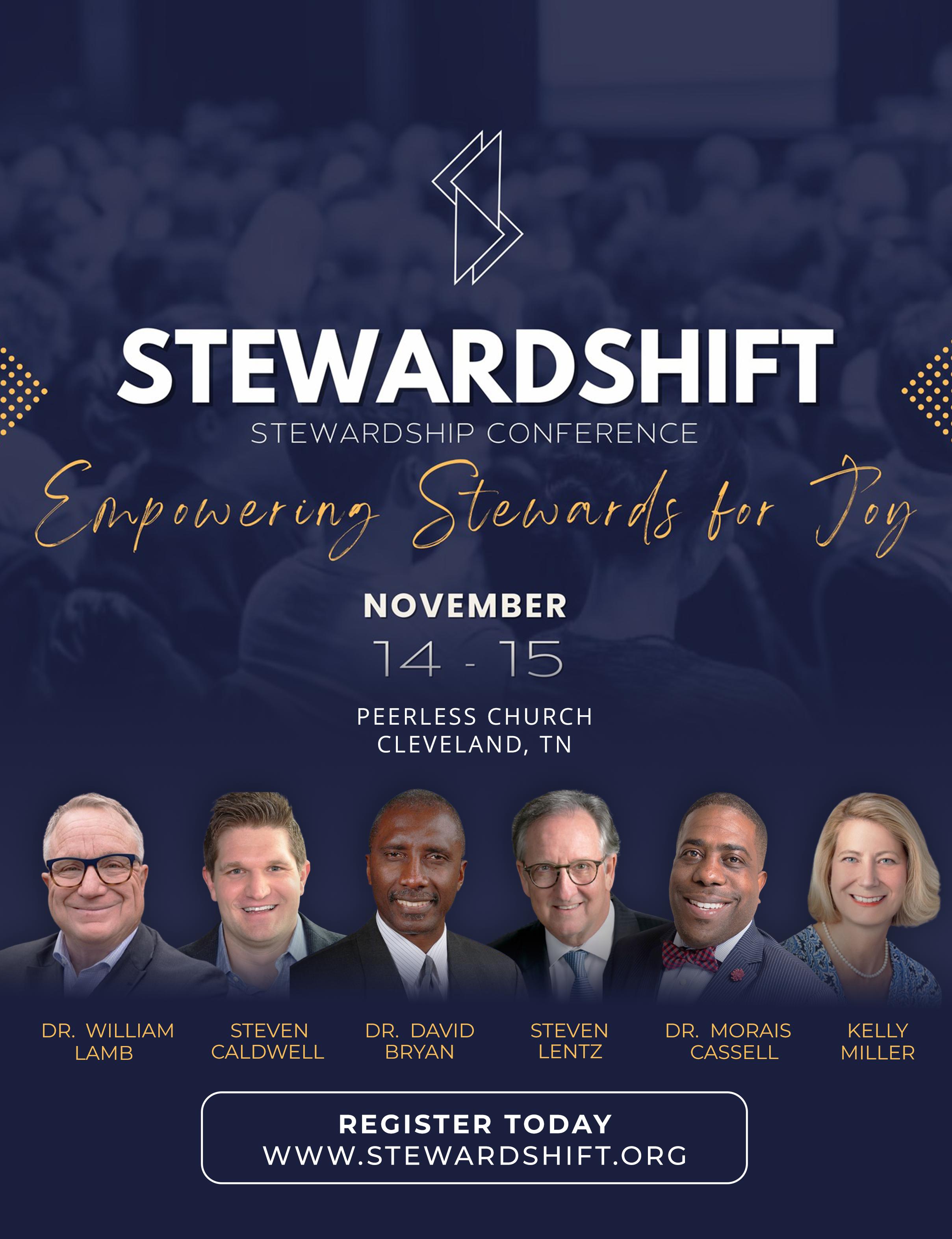

WE BELIEVE in the Holy Trinity—one God, eternally existing in Three Persons: Father, Son, and Holy Spirit.
We believe in one God, the Father, creator of heaven and earth, of all things seen and unseen.
We believe in one Lord, Jesus Christ, the only Son of God, eternally begotten of the Father. All things were made through Him and for Him. He is true God and true man. He was conceived by the power of the Holy Spirit and was born of the virgin, Mary. He suffered, died, was buried, and on the third day He rose from the dead. He ascended to the right hand of the Father, and He will return to judge the living and the dead. His kingdom will have no end.
We believe in the Holy Spirit, the Lord and giver of life, who eternally proceeds from the Father. He is Teacher, Comforter, Helper, and Giver of spiritual gifts. Through Him the saving and sanctifying works of Jesus Christ are applied to the life of believers. He is the empowering presence of God in the life of the Christian and the church. The Father has sent His Son to baptize with the Holy Spirit. Speaking in tongues and bearing the fruit of the Spirit are New Testament signs of being filled with the Holy Spirit.
We believe that salvation is by grace through faith in the sacrificial death of Jesus Christ on the cross and that He died in our place. The believer’s sins are forgiven by the shedding of His blood. We believe that healing of mind, body, soul, and spirit is available to the believer through the blood of Jesus Christ and the power of the Holy Spirit. We believe in one baptism in the name of the Father and of the Son and of the Holy Spirit.
We believe that the grace of God brings forgiveness and reconciliation to those who repent, as well as transformation in holiness, enabling them to live a Christ-like life. Sanctification is both a definite work of grace and a lifelong process of change in the believer brought by the blood of Jesus, the Word of God, and the enabling power of the Holy Spirit.
We believe in one holy, universal church, composed of all true believers in Jesus Christ, offering fellowship and calling for service to men and women of all races, nations, cultures, and languages. We believe in the spiritual and ultimate visible unity of the church.
We believe that the Bible—both Old and New Testaments—is the inspired Word of God. The Bible is God’s revelation of Himself and His will to humankind, sufficient for instruction in salvation and daily Christian living. The Bible is the Christian’s rule of faith and practice.
We believe that God will ultimately reconcile all things in heaven and earth in Christ. Therefore, we look forward to new heavens and a new earth in which righteousness dwells.
Executive Editor/Publisher: Tim Coalter
Managing Editor: Marsha Robinson
Copy Editor: Katherine Osborn, DMin
Graphic Designer: Charlie Scruggs
About the Church of God of Prophecy
The Church of God of Prophecy is a vibrant, worldwide body of believers, united in worship, working hand-in-hand to share God’s love and a message of hope to the brokenhearted. The organization has more than a million members and more than 10,000 ministers, worshiping in more than 10,000 churches or missions in 135 nations of the world.
Church of God of Prophecy Core Values
• Prayer
• The Harvest
• Leadership Development
• Biblical Stewardship
• Service
Vision Statement
Reconciling the world to Christ through the power of the Holy Spirit
Mission Statement
The Church of God of Prophecy is a Christ-exalting, holiness, Spirit-filled, allnations, disciple-making, church-planting movement with passion for Christian union.
General Presbytery
Tim Coalter: Presiding Bishop
Brian Sutton: North America
Clayton Endecott: Wider Europe and the Middle East
Benjamin Feliz: Mexico/Central America/ Spanish-Speaking Caribbean
Clayton Martin: Caribbean/Atlantic Ocean Islands
James Kolawole: Africa
Tim McCaleb: Asia/Australia/Oceania
Gabriel E. Vidal: South America
White Wing Messenger (ISSN 0043-5007) (USPS 683-020) is published monthly as the official publication of the Church of God of Prophecy, 3720 Keith St. NW, Cleveland, TN. Send all materials for publication to Editorial Department; PO Box 2910, Cleveland, TN 37320-2910; email: editorial@cogop.org; fax: (423) 559-5151. For a free subscription, email wwm@cogop.org, visit whitewingmessenger.net, or call (423) 559-5540. Donations for the White Wing Messenger may be sent to the above address. All Scripture references are from the King James Version unless otherwise indicated. POSTMASTER: Send address change to White Wing Messenger, PO Box 2910, Cleveland, TN 37320-2910. Please submit all material to the White Wing Messenger; Managing Editor; PO Box 2910; Cleveland, TN 37320-2910; phone (423) 5595320; email us at editorial@cogop.org.
FEATURES
6 Social Justice and the Great Commission: Towards a JusticeCentric Response to the Great Commission
Bishop Carswell Leonard, PhD
9 The Great Commission Is Relational Rae Marie Marsh
12 “I Was Hungry, and You Gave Me Something to Eat”
Pastor Charles Shepherd COLUMNS
4 Facing Forward
Bishop Tim Coalter
16 Pentecostal Perspective
Marsha Robinson
18 The Pastor's Table Glynis Varlack-Allgood
20 We Are The Church of God of Prophecy
Haitian Creole
22 This Is My Story
Janette Le Roux
24 Ambassadors on Mission
Bishop Shaun McKinley, PhD
DEPARTMENTS
28 Global Missions Ministries
School Tuition Thanks
32 Heritage Ministries
All Nations Church: A Church for All People of Every Tribe and Tongue
36 Center for Biblical Leadership Discipleship: A Commitment to Our Transformation (Part 2)
41 Heritage Ministries In His Presence
The White Wing Messenger is a member of the Evangelical Press Association


FACING FORWARD
BISHOP TIM COALTER PRESIDING BISHOP
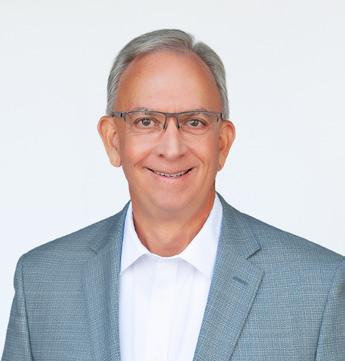
SOCIAL JUSTICE as part of the Great Commission
The Great Commission is not a suggestion—it is a divine mandate. Jesus’ command in Matthew 28:19–20 to “go and make disciples of all nations” has always been central to our mission. But what if we understood this mission more fully, not only as proclamation, but as demonstration? What if the Great Commission and social justice were not competing visions, but complementary expressions of God’s redemptive love?
As a Pentecostal body committed to reconciling the world to Christ through the power of the Holy Spirit, we cannot ignore the physical realities people face while proclaiming eternal hope. Matters such as poverty, homelessness, discrimination, and educational disparities are not peripheral concerns—they are barriers that hinder human flourishing and often become obstacles to hearing the gospel. The renowned German theologian Dietrich Bonhoeffer emphasized the importance of considering people in light of their suffering. I don’t know whom to credit with this statement, but it resonates with me: “When we serve people in their suffering, we don’t dilute our message; we dignify it.”
Jesus did not just preach in synagogues; he touched lepers, fed the hungry, welcomed the outcast, and restored the broken. His message of the kingdom was never detached from his ministry to the poor and marginalized. In Luke 4:18, Jesus declared, “The Spirit of the Lord is upon me. . . .” This anointing empowered him to proclaim good news to the poor, yet it also anointed him to proclaim liberty, healing, and deliverance from oppression. It was not just a spiritual anointing that Jesus received; it was an anointing for holistic ministry.
The early church followed his pattern. Acts 6 shows how the apostles addressed the neglect of widows in daily food distribution—appointing leaders full of the Spirit to ensure justice. The Good Samaritan did not turn a blind eye to the man who had been robbed and left for dead; he bound up his wounds and cared for him. Peter did not step over the man who had been laid at the gate of the
temple as though he had been inconvenienced as he was about to enter the church for a prayer meeting; he healed him. James reminds us that “faith without works is dead” (James 2:17) and that true religion cares for the orphan and widow (1:27).
Evangelism and social action represent two wings of the same bird. Social justice, when Spirit-led and Christcentered, is not a distraction from evangelism; it is often the very thing that prepares the heart for the message. In some communities, people will not “hear” the gospel until they “see” the gospel. A warm meal may not be salvation, but it can be the door through which salvation enters.
We are not called to do social action for social action’s sake. Our mission is not activism; it is reconciliation. That is why everything we do must be empowered by the Holy Spirit. The Spirit does not only give us power to speak in tongues or perform signs and wonders; he also compels us to speak up for the voiceless, to tear down walls of division, and to act justly, love mercy, and walk humbly with our God (Micah 6:8). True Pentecostal power manifests itself in both the pulpit and the pantry, in the sanctuary and on the street corner.
I understand that some may worry that focusing on justice might overshadow our central calling to evangelize. That is a valid concern. But I would urge us to see these efforts not as a replacement of our gospel witness, but as an extension of it. A child lifted out of illiteracy, a homeless mother finding shelter, a divided community finding unity—these are not just social successes. They are spiritual victories when done in the name of Jesus through the power of the Holy Spirit.
When done right, social justice is not the church losing its voice; it is the church gaining its voice. It is not the church losing the gospel message—it is the church living its message. So LIVE OUT LOUD! LOVE BIG! Supersize your SERVE! It’s what Jesus would do!

FEATURED IMAGE
▲ The cover image was provided by Global Missions Ministries. It features Bishop Gopal Lama, national bishop of Nepal, distributing backpacks to children the Church of God of Prophecy supports through One Child Fund.

SOCIAL JUSTICE and THE GREAT COMMISSION:
Towards a Justice-Centric Response to the Great Commission
BISHOP
CARSWELL A. LEONARD, PHD
Introduction
Since the mid-20th century, the term “social gospel” has carried both positive and negative connotations in different sectors of Christianity. The space limitations of this article will not permit any significant treatment of the polemic that developed between those who had different perspectives regarding the focus on this aspect of the gospel. Suffice it to say, the term “social gospel” emerged as a response to the negative effects of industrialization on the most vulnerable in society, particularly the poor. The efforts to address and possibly remedy these negative consequences became known as “social justice.” Consequently, it is understood that the juxtaposition of the term “social justice” with the Great Commission in the title of the article may provoke similar tensions.
Nonetheless, the premise of this article is that social justice and the Great Commission are not mutually exclusive but are inextricably linked. An evangelistic/discipleship hermeneutic is usually applied to the Great Commission (and rightfully so). Consequently, the metric of success of this mandate is often (though not exclusively) individual transformation. While this is at the heart of our evangelical tradition, it cannot be divorced from the fact that oppressive systems and structures also need to be exposed to the transforming power of the gospel. This is the social aspect to which the gospel speaks and demands justice—a justice that finds its source in the very nature of the triune God. Kallistos of Diokleia wrote, “Our belief in a Trinitarian God, in a God of social inter-relationship and shared love, commits us to opposing all forms
⊳ COGOP AROUND THE WORLD This image features the Church of God of Prophecy in Eastern Europe engaging in street evangelism by distributing tracts.
of exploitation, injustice and discrimination. In our struggle for human rights, we are acting in the name of the Trinity.”1
In Living the Justice of the Triune God, David N. Power and Michael Downey posit, “The pursuit of justice is central to the Christian life and constitutes a distinctive ‘spiritual life.’ What is needed is a Christian spirituality that grounds the quest for justice on the part of those who seek to live by the gift of the Spirit in their own time and place, in a world that is crying out for divine justice, for God’s own justice.”2 The idea of the centrality of the pursuit of justice in Christian spirituality that Power and Downey propose is one that is often lost in the fervor of evangelicalism. Consequently, Chirstian spirituality must not only be concerned with the eternal soul of individuals, but also for the existential conditions in which they live and often suffer.
Justice in the Bible
The Hebrew word that is translated as justice in the Old Testament is mishpat. Leon Morris offers the following:
Mishpat is an attribute of God. Mishpat is not just something that God does; it is who He is. God is the originator and protector of mishpat, and everything He does shows His character. Mishpat flows from Him. When we act justly, we are not following some made up, meaningless human law; we are reflecting God’s character to the world. God loves and does mishpat, and He therefore expects His people to mirror that.3
Consequently, some of the many current issues that carry profound social implications and that must be addressed by the church in the pursuit of justice—God’s justice (mishpat)—are enumerated below:
• What does justice look like in the face of the immigration crisis in America and around the world?
• What does justice look like in the face of the humanitarian crises around the globe (despite the causes)?
• What does justice look like in the unequal distribution of wealth in the world that leads to poverty, homelessness, and starvation?
• What does justice look like relating to the lack of access to adequate healthcare resulting in health disparities that produce the innumerable negative health outcomes faced by so many poor, minority, and marginalized communities around the globe?
• What does all this have to do with the Great Commission?
These are difficult questions to wrestle with, particularly in the current socio-political climate. This article does not purport to answer these questions, but they are questions that cannot be ignored as we seek to reconcile the world to Christ through our evangelistic efforts empowered by the Holy Spirit. In this pursuit, the reconciling message of the gospel must be presented in the context of justice. This justice should be understood as a “right ordering” of society that seeks to align with the triune nature of God. Power and Downey offer the following:
To live by divine justice is to be conscious that humanity is justified not by its own configuration of justice but by the justice whereby God justifies a sinful race. All inner-worldly systems of just ordering have to render an account of what comes as a gift from the transcendent and leads to the quest for a common humanity that aspires a communion with what is given and finds in this the ground of a human order that makes authentic human development possible.4
This “right ordering” must be motivated by love— the agape love that reflects the nature of the triune God for the world and which becomes the power of the gospel. The Great Commission is the mandate to demonstrate God’s love to the world through the good news of Jesus Christ. Power and Downey write concerning this inextricable link between God’s love and justice, “Christian theologians must of necessity say that in the Christian dispensation love is the form of all virtues. Justice itself, with all its concern for good order and the well-being of
all beings, collective and individual, is subsumed by charity.” What is being said is that there can be no justice without love, and conversely, there can be no love without justice. If the Great Commission is indeed motivated by love, then there can be no fulfilment of the Great Commission that is devoid of justice.
The Great Commission
“Go ye therefore, and teach all nations, baptizing them in the name of the Father, and of the Son, and of the Holy Ghost: Teaching them to observe all things whatsoever I have commanded you: and, lo, I am with you alway, even unto the end of the world” (Matthew 28:19–20 KJV).
The mandate to teach all nations is none other than to spread the teachings of Jesus. These teachings focus on the spiritually lost and their need for reconciliation with the Father. The teachings of Jesus also focus on the least and the last. The least and the last are those who have been marginalized—pushed to the margins where the abundant resources of the world seldom reach. They are the most exposed and most vulnerable to the forces of globalization, socio-political and economic instability, corporate greed, and all the forces that unequally affect the poor. This holistic approach to teaching (fulfilling the Great Commission) should be the pedagogy of the church.
Next is the mandate to baptize. I posit that baptism should not only be understood sacramentally, but it must also be understood sociologically. It must be seen not only as an immersion in water as a public confession, but also as a spiritual immersion into
the triune nature of God where perfect love and justice find their source. A spiritual immersion into the nature of the triune God is one that is reflected in the equality that is afforded to all people because they bear the image of God (image Dei). This requires a gospel that speaks to the demand for justice as a reflection of that image.
In the eschatological discourse found in Matthew 25, Jesus makes it clear that the response to the needs of the least and the last will be a metric of the fulfilment of the Great Commission:
Then shall the King say unto them on his right hand, Come, ye blessed of my Father, inherit the kingdom prepared for you from the foundation of the world: For I was an hungred, and ye gave me meat: I was thirsty, and ye gave me drink: I was a stranger, and ye took me in: Naked, and ye clothed me: I was sick, and ye visited me: I was in prison, and ye came unto me. (Matthew 25:34–36)
In conclusion, the evangelistic fervor engendered by the mandate of the Great Commission must include the pursuit of justice—one that seeks a “right ordering” of a society impacted by unjust systems and structures that disregard and even deny the God-given gift of humanity of “the least of these ” The message of the Great Commission is the gospel of Jesus Christ. This gospel targets both individual and societal transformation. This gospel of social transformation is one that requires justice on behalf of all of humanity. It is to this pursuit of justice that the church is called in the prophetic tradition of Amos 5:24 (NIV): “But let justice roll on like a river, righteousness like a never-failing stream!
1 Kalllistos of Diokleia. “The Human as an Icon of the Trinity.” Sobornost 8, no. 2 (1986): 12, https://static1.squarespace.com/ static/56a7e8a605f8e2daf71379af/t/65df4e679637630f43bf80d8/1709133419124/The+Human+Person+as+an+Icon+of+The+Trinity.pdf.
2 David N. Power and Michael Downey, Living the Justice of the Triune God (Collegeville, MN: Liturgical Press, 2012), xi.
3 Leon Morris, The Biblical Doctrine of Judgment (Eugene, OR: Wipf and Stock Publishers, 2006), 60.
4 Power and Downey, Living the Justice, 63.

BISHOP CARSWELL A. LEONARD, PHD
Bishop Carswell A. Leonard was born in Charlotte Amalie, U.S. Virgin Islands, and formerly served as the senior pastor of State Street Community Church of God of Prophecy in Raleigh, North Carolina. In 2020, he was appointed national bishop of the U.S. and British Virgin Islands, Aruba, Bonaire, and Curaçao. Bishop Leonard has an MDiv from Shaw University and earned his PhD in Theological Studies and Afro-Caribbean Spirituality from Regent University.
The Great Commission is Relational
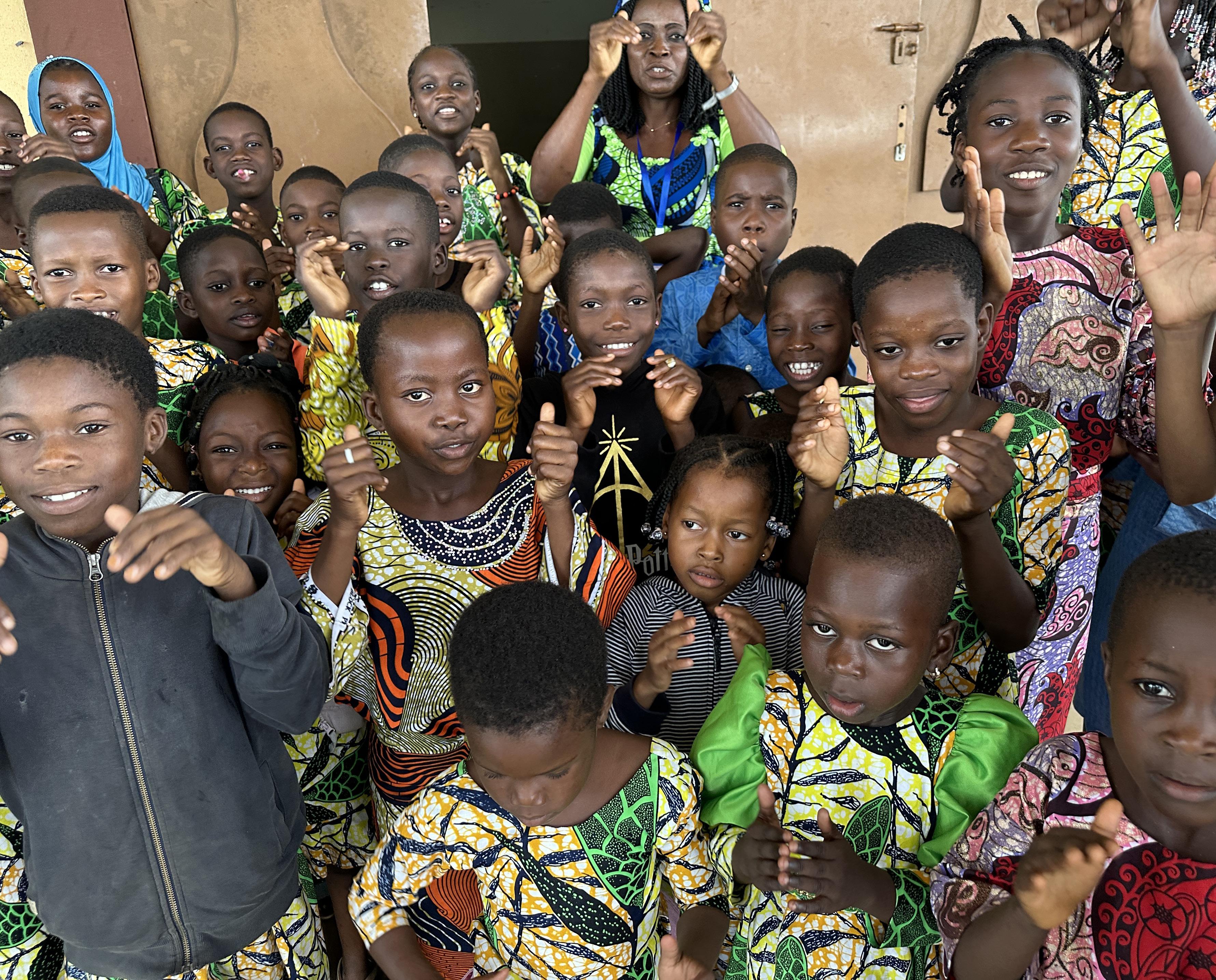
The Lord’s words in Matthew 28:19 are beautifully transcendent. Jesus requires the gospel to flex its muscles through us. The Great Commission releases us into the world with an intention. We have an agenda. The Great Commission is a multigenerational group project that every believer contributes to throughout time. At each opportunity, we put our hands to the plow, scatter seeds, lay bricks upon bricks, and we push. God’s people build. We build his kingdom in zones of prosperity, and we build his kingdom where there is destruction and ruins. We are construction workers for the kingdom of God. Be careful not to miss the beauty in this. Consider the broadness
and the expansiveness of what Jesus requires. He stamps us with his authority and instructs us to pursue every type of person. Our Lord’s instructions (paraphrased) imply that we should bring people to him, baptize them, and teach them how to follow Jesus. Remember: He is with us as we do this.
We have his authoritative permission to be creative with our approach and obey this directive in various settings, impacting any population or demographic. If we strip social justice down to the fundamental examples the Scriptures provide, our motives will be pure, and we will please the Lord.
▲ COGOP AROUND THE WORLD This image features the Church of God of Prophecy in Benin.
RAE MARIE MARSH
Through parables, Jesus explained his care for each individual, illustrating that one person out of a hundred is important to him. Jesus liberates his people so they can contribute to his work in the earth in a way that pleases him, as long as one person is receiving his love through us.
Jesus clarified his compassion for the vulnerable who are at risk for being harmed by the depravity of this world. We cannot merely love their souls and the idea of their eternal relationship with God. Included in the gospel, as demonstrated by our Lord, is a love for people that touches their earthly circumstances now. He forgave sins and he healed bodies. He validated the widow’s mite and labeled her as valuable in God’s kingdom. He
Included in the gospel, as demonstrated by our Lord, is a love for people that touches their earthly circumstances now .
rebuked the Pharisees for encouraging people to financially neglect their elderly parents. He first settles our deepest need for salvation and then remains involved in the details and needs of our lives. We observe the Lord as he places the isolated into spiritual families, fills hungry bellies, provides income to a group of fishermen, and cares miraculously for the sick. He makes it clear that he sees the rejected, such as the woman caught in the act of adultery. He ate dinner with those who were hated and bound by their sinful lifestyles, such as the tax collectors. Jesus spent significant time investing in the lives of those whom the religious experts thought he shouldn’t. How does that translate to disciples following Jesus in 2025?
Displaced Afghan Refugees
Social action includes being in authentic relationships with individuals and families who are not like us in terms of race, culture, religion, socioeconomic status, and even worldview. Modeling the gospel with our lives and displaying sensitivity in real time are both tasks of the Great Commission. In 2022, over a thousand Afghan refugees resettled in our city near Raleigh, North
Carolina. Our outreach coordinator enlisted the congregation to donate and sort survival supplies for the refugee families. This project responded to an urgent and unanticipated need since the displacement of Afghan families was traumatic and swift. There was no political consideration or question as to whether or not these families were worthy of support. The Lord graciously allowed our hands of service to go beyond meeting only tangible needs. The organizer of the support center, an Afghan Muslim, asked to visit our church to show gratitude for our support. We were a brandnew church plant, having services in our homes after the pandemic. The Lord allowed us to open the Scriptures and connect across cultures to share the gospel, which was more than we expected. We all sat, in the tension of his opposing Islamic religious beliefs, and taught the gospel. The Great Commission calls us to a specific type of social action that is relational, vulnerable, and inevitably uncomfortable.
Embracing new and unique relationships, sharing spaces, and allowing discomfort causes social action efforts to translate into eternal investments. Social justice towards individuals matters just as much as it does for groups and neighborhoods since individuals matter both to Jesus and the angels in heaven. Every step forward for the kingdom of God is highly celebrated by the one with the highest authority. The impact and results are the Lord’s.
Hope and Prayer Booths
Post-pandemic church planting with a disciplemaking focus instead of a Sunday-service focus was as difficult as it sounds. Additionally, our rapidly growing community was affluent and highly educated, attracting young families from all over the United States and India. We quickly realized we were in a local mission field where most people were extremely satisfied with their lives and had no physical needs. The Indian community proudly practiced Hindu and invited everyone to their religious festivals, which became a normal part of the town’s culture. We found ourselves preaching the gospel and sharing Jesus in a community where many hearts were hardened to the gospel. The political climate added a layer of skepticism. We had to close our eyes to the outward faces of men and discern the glaring inner spiritual need
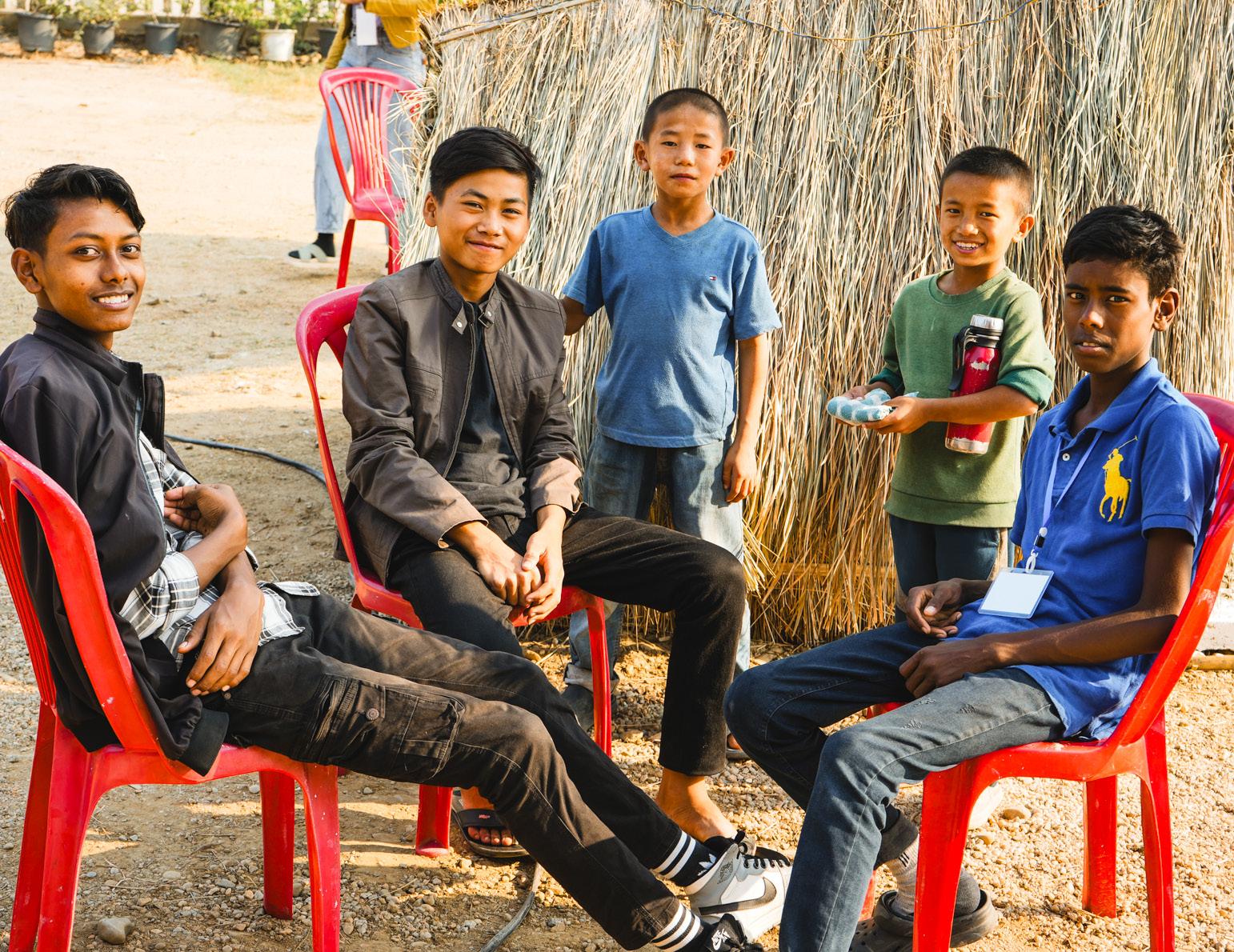
that still existed even when people did not believe they needed Jesus.
The Lord crafted a vision for us, and we set up “Hope and Prayer” booths in parks and in front of grocery stores throughout the community. The local parks are where many families gathered for recreation and sports activities. We provided free pizza during soccer games, gave away Christcentered T-shirts, and offered to pray on the spot for the needs of their families. We shared the gospel, and while the responses varied, we were meeting physical and spiritual needs in the Lord’s name. This is an example of brick and mortar laid on a solid foundation in spaces where the spiritual needs are not obvious or welcomed. In season and out of season, the gospel moves us to relational action with our Great Commission agenda in mind.
God’s Word will not return void but will accomplish what he sent it to do even as we give a cup of cold water (Matthew 10:42) to people, hoping they will become his disciples. We must eliminate the natural
inquiry—asking who is deserving of Christ’s love in action—especially since none of us are deserving of Jesus’s sacrifice.
In order to unravel our paralyzed approaches and actually take action, we must extinguish the overwhelming desire to unilaterally repair every social problem. Instead, identify the crossroads where compassion meets capacity and, in those opportunities, be intentional. Our intentionality in Christ looks like Ephesian 5:16 (NIV): “Making the most of every opportunity, because the days are evil.” Humbly seek to learn the needs of those experiencing circumstances that place them at risk. Rest assured that the gospel and the Great Commission already give us permission, authority, and a command to assist. We can and should support individuals and communities who are mourning. The push from our Savior is to love others through all the opportunities created by living in flesh on this earth. The circumstances that beg for our attention are numerous.
COGOP AROUND THE WORLD This image features children of the Church of God of Prophecy orphanage in Nagaland, India.

Rae Marsh is an ordained minister at Research Triangle Park Community Church in Durham, North Carolina, where she serves as the Christian Education Coordinator. After accepting God’s call to ministry in 2006, Rae served all age groups through teaching, preaching, disciple making, and executive skills. Rae ministered faithfully at Bridge of Hope Church in Greensboro, North Carolina, for over 15 years. In 2020, she helped her husband lead a disciple making mission at the satellite church plant of Bridge of Hope Church in Apex, North Carolina. In July 2025, Rae was appointed assistant director of Sister 2 Sister Women’s Ministry for the North Carolina COGOP. Rae is a licensed Christian mental health therapist and social work professor at Liberty University Online.
RAE MARIE MARSH APEX, NORTH CAROLINA
▲
35For I was hungry and you gave me something to eat,
PASTOR CHARLES SHEPHERD
35For I was hungry and you gave me something to eat, I was thirsty and you gave me something to drink,
I was a stranger and you invited me in,
I prepared for you since the creation of the world.
We are, without a doubt, commanded to proclaim the gospel to everyone. It is our ultimate calling to be witnesses to the power and love of God to the world around us. In the grand scope of things, their spiritual health is of utmost importance. We can feed the whole world, but if they do not know Jesus, it is of little benefit to them spiritually. But there is also a harsh reality that the church faces: Sometimes it is hard to hear the gospel over the rumbling of your own stomach. What I mean by this is that for so many in this world who are struggling with poverty and hunger, it is hard to hear “God loves you” when it seems like the whole world is against them. We can stand on the street corner loudly proclaiming that Jesus is the way, but that does nothing to meet the immediate need for the single mom raising her children who can barely pay the bills, or for the grandparents who are stepping up to care for their grandchildren because the parents are absent. What about the family that works, but it just does not seem to be enough; then the car breaks down, and they must choose between fixing the car or eating? Where do the church and the gospel fit in these scenarios?
Trying to meet both the physical and the spiritual needs of others can seem like an impossible task. Yet this is exactly where God has positioned the church—your church—in a very special place to meet both the needs of the body as well as the spiritual needs of the people in your community. For our smaller churches, which make up the majority, this can seem like an overwhelming task. However, I would like to share with you what God has done through the small church I pastor in Rockwood, Tennessee, to testify to what God can do when we step out in faith.
I have been at the Rockwood COGOP for almost 10 years now. During that time, we have struggled with how to reach out to the community, especially after the COVID-19 shutdown. About four and a half years ago, I began to feel impressed to open what many call a “blessing box.” Naturally, there were some uncertainties, questions, doubts, and fears: How will we afford to keep it stocked? Won’t people just vandalize it? What about the ones who just choose to not work; won’t they abuse it? To be honest, I was one of those asking some of these questions. My background in law enforcement makes me somewhat skeptical of people in general.
As we stepped forward in faith, we were blessed to find a great deal on a small drink cooler and placed it at the church. From the beginning, the goal was not
just about feeding people; it was about connecting with the community. I started posting about this on a local county-based Facebook page, and the response was huge—both from those needing the support as well as those who wanted to help. In the four years we have operated the Care Cabinet (the name we gave it), we have never run out of food. Multiples times each week, I have found items stocked in the cabinet that did not come from us but from anonymous donors in the community. On several occasions I have found the cabinet stocked completely full, all from donations from outside the Church. God had shown himself faithful as we answered the call.
Jump forward to earlier this year, 2025. I began to feel in my spirit that God was calling us to step up and go bigger. We had seen our sister Church in Crab Orchard, Tennessee, with Pastor Marcy Brannon, grow their “Little Red Shed” food ministry into a larger storage building, and at the same time, they began to offer pre-made meals to the community on an almost daily basis. I felt this was where God was wanting to take us.
Hesitantly the church agreed to pursue this, and almost immediately God began to work. He had brought us three new people because of the outreach we had been doing through the Care Cabinet. These were not people receiving food through the cabinet, but Christians who wanted to join in the work we were doing. Funds started coming in for a larger building, and within three months we ordered an 8 x 12 metal storage building, and we were given a new drink cooler that worked. On June 15, 2025, we opened the new Care Cottage with prayer, dedication, and commitment.
It took almost no time for us to see that the need in the community was huge but so were the hearts of so many individuals. We were given a refrigerator/freezer combo, which greatly expanded our capacity for perishable items. Many from the community reached out to me privately asking what we needed and what they could do to the point that we have a fairly steady stream of people bringing items to stock the Cottage from outside our church. From the beginning, I had told the church that we had to step out in faith first, and then God would provide. We did, and he has been faithful.
Aside from prayer, one of the greatest things that has helped us to succeed and to meet so many needs was accomplished by reaching out to the community for help. When we post on Facebook, it is not just about what has

been stocked in the Cottage, but we also ask for help, listing specific items that we need. I have also used a Tennessee deer hunting forum to ask for any hunters who might have deer meat to donate, and the response has been great. Recently we have had several cash and gift card donations sent to us from across the state from people thankful for what we are doing. A large farm in Sweetwater reached out to us and is providing produce once a week, some weeks over 200 pounds worth. We have been able to get fresh milk from a dairy distributor that had an overstock. A local food truck reached out wanting to know if we could use the food they had left at the end of the day. The response in general from others wanting to help has been so wonderful and encouraging. God is not only blessing those in need, but he is also creating some great connections.
Sometimes it seems almost impossible to meet all the needs. Roane County, where the church is located, has so many who are suffering. I have seen numbers as high as 49 percent of the population live below the poverty line. Almost half of the county’s residents are just barely getting by. Yes, there are some who choose to live that way, but what we have found is that these are a very small percentage. For the most part, the people who come are just struggling. They work jobs, but decent jobs are in short supply in our county. For so many families, if a car breaks down, a major household item fails, a member of the household has a prolonged health crisis, or something happens that causes a wage earner to miss work, they find themselves in a major
financial crisis that can be difficult to recover from. If we as the church can step in and help them out with some food for a day or more, if we can ensure their kids have something to eat or provide a sack lunch for that parent headed to work, then we hope we have helped them to alleviate or circumvent that crisis.
Here are some examples of the demand we have encountered. A few weeks ago, we received 54 halfgallon jugs of milk. These were gone in less than 24 hours. The following day, we received eight crates of half pints of chocolate milk which were also gone in less than 24 hours. Three weeks in a row, both the fridge and the cooler have been filled to almost overflowing with produce, and it has all been taken in less than two days. At least twice a week, we stock the fridge with sack lunches, usually 24 at a time, and they are gone by the next day. I know some would say that it is one person grabbing it all, but we have not seen that happen. Recently while my wife and I were there cleaning and stocking some produce we had picked from a member’s garden, in the space of roughly one hour, we had four different families come by the Care Cottage needing food. It is rare when I am there, even if it is for only a few minutes, that I do not have someone come by in need.
A few examples of people we have encountered include a father of three who stopped by a week ago. He works as an in-home healthcare worker and is between assignments. His wife also works, but with him being out of work, it put them in a tight spot. He
The Care Cottage of the Rockwood Church of God of Prophecy in Rockwood, Tenneessee.
was so sweet asking if he could repay the help once he was working again. I told him to just bless someone else, whether through us or somewhere else, once he was back working. We have helped a lady who is caring for her elderly father, and the expense has placed a great burden on her. We have blessed multiple sets of grandparents who are raising their grandchildren due to the parents having substance abuse problems or other issues that have taken them away from the family.
As for the future of the Care Cottage, we see God taking us increasingly in the direction of being able to offer sack lunches or pre-made meals that are ready to eat. We find in general that the quick, ready-to-eat items are always the first to go, whether they go to the homeless who do not have access to appliances or because they are simply easier for people. Snack foods also go very quickly, as well as personal hygiene products. Additionally, we see God opening more doors for partnering with others in the community, including other churches. We have one church, the New Springs COGOP, that has committed to helping us, and we are hoping to hear back from some others very soon.
In Matthew 25, Jesus tells a story about the judgment that is to come:
“Then the King will say to those on His right, ‘Come, you who are blessed of My Father, inherit the kingdom prepared for you from the foundation of the world. For I was hungry, and you gave Me something to eat; I was thirsty, and you gave Me something to drink; I was a stranger, and you invited Me in; naked, and you clothed Me; I was sick, and you visited Me; I was in prison, and you came to Me.’ Then the righteous will answer Him, ‘Lord, when did we see You hungry, and feed You, or thirsty, and give You something to drink? And when did we see You a stranger, and invite You in, or naked, and clothe You? When did we see You sick, or in prison, and come to You?’ The King will answer and say to them, ‘Truly, I say to you, to the extent that you did it to one
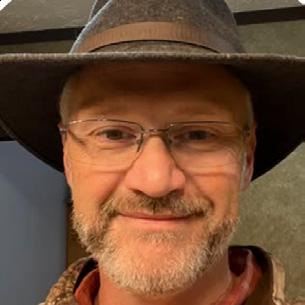
PASTOR CHARLES SHEPHERD ROCKWOOD, TENNESSEE
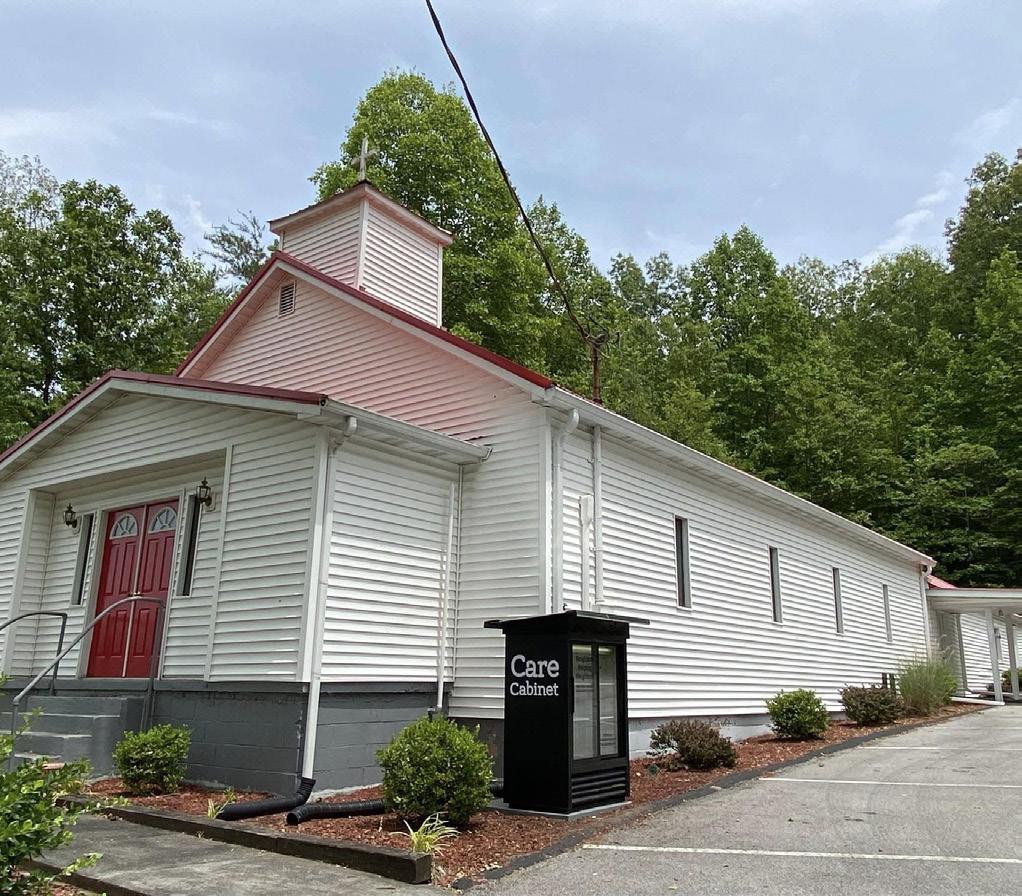
of these brothers of Mine, even the least of them, you did it to Me.’” (Matthew 25:34–40 NASB)
God calls us to meet both the spiritual as well as the physical and social needs of those around us. When we step out in faith, God will open doors that we cannot imagine so that we can meet those needs.
How can others help us? First of all, anything and everything helps. There is very little in the way of food or personal hygiene items that won’t bless someone. Individuals who want to donate directly can simply stop by the Cottage 24/7 and place items directly on the shelves or in the refrigerators. If they have a large donation, they can contact me to arrange pickup. Several of our local gardeners and those with chickens have blessed us with donations. We are currently seeking a handful of churches, businesses, or organizations that would commit to doing a “Cottage pounding” once a month which would be a huge blessing to help keep up with the demand. People can also give directly, either by sending in donations to our treasurer or by giving through our portal: http://Rockwoodcogop.churchtrac.com/give.
Charles Shepherd was born in Marietta, Georgia, and raised in Northeast Tennessee. He is the pastor of the Rockwood Church of God of Prophecy in Rockwood, Tennessee. He is married to Leah Shepherd, his wife of 25 years, and has two daughters, Nevalin Shepherd and Gracie Shepherd. Pastor Charles is a lover of God's Word, hunting, fishing, and being outdoors.
The Rockwood Church of God of Prophecy in Rockwood, Tenneessee.

Social Justice and the Great Commission
Two Sides of the Same Mission
When Jesus gave his followers the Great Commission—“Go therefore and make disciples of all the nations” (Matthew 28:19 NKJV)—he was not only calling them to proclaim the good news of salvation but also to embody the kingdom of God in visible ways. For Pentecostals, the Great Commission has always been inseparably tied to the power of the Holy Spirit. Acts 1:8 reminds us that the Spirit empowers believers to be witnesses in Jerusalem, Judea, Samaria, and to the ends of the earth. But this witness is not limited to preaching; it includes demonstrating the love, justice, and compassion of Christ.
Social justice, at its core, reflects the kingdom values of equity, mercy, and care for the marginalized. Far from being a distraction from evangelism, it is an expression of it. Pentecostals today are rediscovering that Spirit-empowered mission must speak to both souls and systems, people and structures, salvation and justice.
Jesus Announced and Enacted the Kingdom
The ministry of Jesus is the foundation for Pentecostal engagement with social justice. In Luke 4:18–19 (NASB), Jesus declared his mission: “. . . to bring good news to the poor, . . . to proclaim release to the captives, and recovery of sight to the blind, to set free those who are oppressed.” This was not a metaphor; it was a holistic announcement that God’s reign was breaking into human history.
Pentecostal theology emphasizes that Jesus’s ministry continues through the Spirit-filled church. We preach Christ, crucified and risen, but we also carry forward his commitment to the broken, the sick, the poor, and the marginalized. The Great
Commission is not only about baptizing converts but also about forming disciples who embody Jesus’s compassion in tangible ways.
Spirit Empowerment and Social Concern
From the Shearer Schoolhouse and Azusa Street revivals onward, the Pentecostal movement has proclaimed that the baptism of the Holy Spirit empowers believers for mission. Early testimonies describe not only miracles and conversions but also a radical community where racial and social barriers were challenged. A. J. Tomlinson, William Seymour, and other pioneers in the Pentecostal movement envisioned a life in the Spirit where Spirit baptism would ignite a love for all people and break down walls of division.
This Spirit empowerment drives us outward. Pentecostal mission is not only proclamation with words but also demonstration through deeds. Feeding the hungry, advocating for the oppressed, caring for the orphan and widow—these acts are not optional extras but Spirit-inspired responses to the love of God. Justice is mission because it embodies the witness of the Spirit in the world.
The Great Commission and the Great Commandment
The Great Commission must be read alongside the Great Commandment: “You shall love the Lord your God . . . [and] your neighbor as yourself” (Matthew 22:37–39). Pentecostal discipleship refuses to separate these two. Evangelism without love becomes cold rhetoric; social action without the gospel loses eternal perspective. Together, they reflect the heart of God.
For example, when Pentecostal believers establish food pantries, run addiction recovery programs, or advocate for refugees, these are not distractions
from “real” ministry. They are ministry. They are ways of proclaiming that the kingdom of God is breaking into the world—both through salvation in Christ and through justice for the oppressed.
A Global Mission for a Broken World
Pentecostals are uniquely positioned to speak into the global conversation on justice. With churches in nearly every nation, Pentecostals understand firsthand issues like poverty, persecution, corruption, and inequality. In many regions, Pentecostal pastors are the first responders to community needs—organizing relief, distributing food, and advocating for peace.
This global perspective reminds us that the Great Commission does not happen in a vacuum. Discipleship must take into account the real struggles of people’s lives. Teaching believers to obey Christ includes guiding them to live justly, to seek peace, and to care for the vulnerable.
Challenges and Opportunities
Pentecostals sometimes face tension over the role of social justice. Some fear that justice work distracts from evangelism. Others worry that aligning with justice creates the risk of diluting the gospel. Yet, Pentecostal theology offers a corrective: the Spirit integrates word and deed, power and compassion.
The opportunity before us is to recover the radical vision of the early Pentecostals who expected the
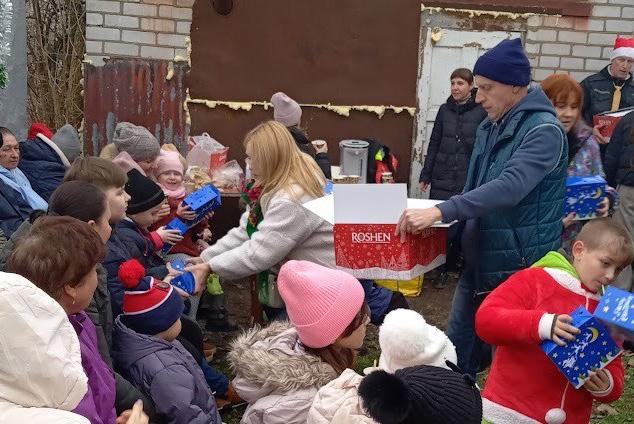
Spirit to transform not only individuals but also communities. Justice and evangelism are not two separate missions but one Spirit-empowered witness to the reign of God.
A Call to Be a Spirit-Filled Witness
Social justice is not a political add-on to Pentecostal faith; it is rooted in the very mission of God. The Great Commission calls us to make disciples, and true discipleship forms people who love God and love their neighbors—especially the least, the lost, and the left behind.
In a world still fractured by poverty, racism, violence, and inequality, Pentecostals are called to bear Spirit-filled witness. This means preaching the gospel with boldness and serving the poor with compassion, proclaiming Christ’s salvation and embodying his justice.
As we live out the Great Commission in the power of the Spirit, we do not merely announce the kingdom—we enact it. And in doing so, we reveal to the world the fullness of the good news—that Jesus saves, Jesus heals, Jesus delivers, and Jesus brings justice.
▼ COGOP AROUND THE WORLD LEFT: The Church of God of Prophecy in Ukraine distributing gifts. RIGHT: The Church of God of Prophecy at the 2025 Nepal Youth Conference distributing Bibles.
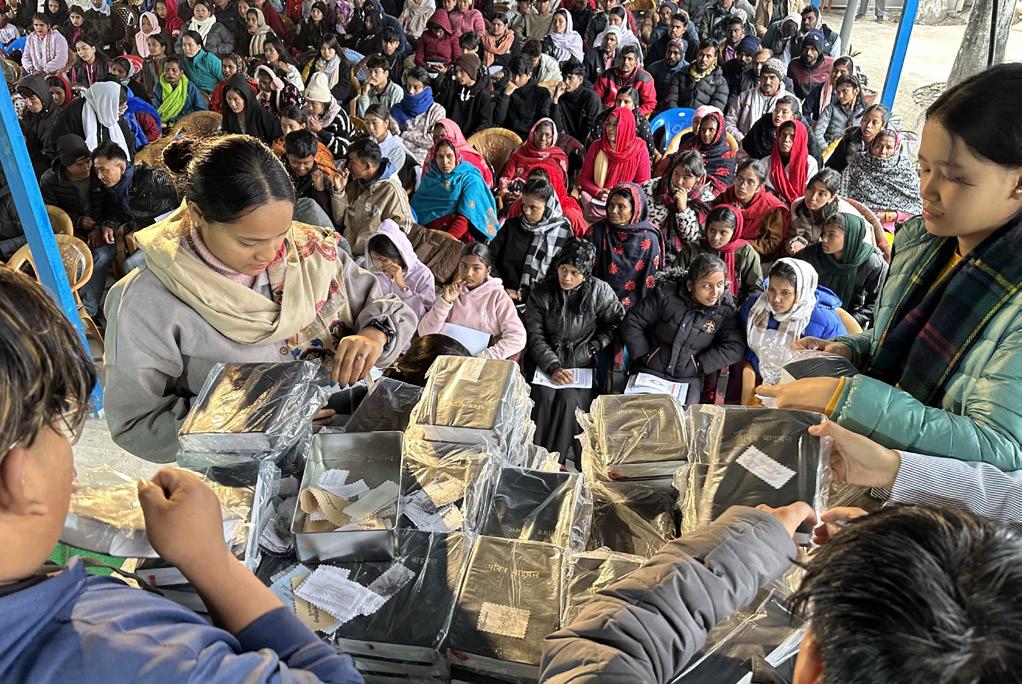

MARSHA ROBINSON | MANAGING EDITO R
THE PASTOR'S TABLE

TECHNOLOGY IN MINISTRY:
Are We Using It and What Are We Doing with It?
| CLEVELAND, TENNESSEE

I was 13 or 14 when I noticed the trucks and vans with the futuristic satellite equipment outside the General Assembly tabernacle. I was on one of my many trips up the stairs to the concession stand for a drink or a snack, or for no reason at all, when I spotted them. The following day, as we arrived at the tabernacle for service, I asked my dad what those vehicles were for. His answer was simple. The church used them and the accompanying technology to share the good news. I was hooked.
Even then, technology connected people around the world, both within and outside the church, to our General Assemblies so that the gospel of Jesus Christ could be shared. The world could tune in to hear the gospel! I remember marveling at camera operators with big headsets on and imagined being one of those when I grew up. My love for technology really began with observing those camera operators. They were gifted, talented men and women who had a critical role in sharing the gospel across the world. Technology looks different in 2025, but its goal and function for believers is the same: We leverage technology as a tool to share the good news of the gospel of Jesus Christ.
World events of 2020 taught pastors and churches all over the world how to do church differently and with a broader mindset. Churches that were not already live streaming or recording their services quickly developed plans to minister to entire groups of homebound people. Churches large and small mobilized cell phones as connectors. This huge step forward for local ministry served as a catalyst bringing about a radical global technology shift that was no longer limited to large churches with big budgets. I personally watched multiple services of small and large churches in multiple languages and from nations that I could never have accessed prior. The year 2020 taught us the valuable lessons about community connection and optimizing opportunity. Streaming was no longer an option; it had become a necessity.
Technology is an incredibly valuable tool when used properly. It connects people to God and to each other whether separated by thousands of miles or a few yards. It will never truly replace hugs, knuckle bumps, nor speaking to someone face to face, but it is a valuable mechanism when utilized to garner, grow, and maintain connections.
GLYNIS VARLACK-ALLGOOD
What does technology in ministry look like? I am glad you asked. There are many avenues to use technology at the local church level and in other areas of ministry as well. I will list just a few with examples:
1. Social media (designer, content creator, photographer)
2. Websites (designer, support, administrator)
3. Audiovisual (sound board, projection operator, crew)
4. Live streaming and/or recording (camera operator, live stream manager, content creator)
5. Administration (database management, facility management, information sharing)
6. Support and alternative usage (Zoom Bible studies, small groups, etc.)
7. Outreach (sharing information, planning)
Let me focus for a moment on the connection component. With a little creativity and a small investment of time and sometimes resources, technology can connect us, serve us, and enable us to spread the gospel to a lost and dying world more efficiently than we ever have before. Technology aids us in our mission to “reconcile the world to Christ through the power of the Holy Spirit.”
As we maintain our focus on the mission, it is critical that local churches ask a few main questions:
1. How are we using technology to further the good news?
2. Do we have an online presence, and are we using it as a form of outreach?
3. Is what we share uplifting, engaging, and encouraging, and does it ultimately point to Jesus?
Follow-up questions include the following:
1. Does our church or ministry have a website?
2. Does our church or ministry have an effective social media presence (Facebook, Instagram, TikTok, YouTube, etc.)?
3. What does our ministry do to let our community know we exist?
Let’s be real. People who drive past your church or ministry are rarely going to stop or return to visit. We know that the power of the presence of the Lord brings people to churches, but we have a responsibility to let our lights shine. God is glorified when we share his love and light well.
Let your light so shine before men, that they may see your good works, and glorify your Father which is in heaven. (Matthew 5:16)
How does the community know that God is moving in their own backyard, that there is a community that welcomes them, and that there are resources available to them?
Have you ever placed an order online? Generally, when looking for a piece of clothing or a toy, we grab our phones and scroll sites with tons of ads until we find the item. We purchase it online or run by the store to get it. I prefer to shop where I know the item is in stock and where customer service is good. It is frustrating to go to a store and not find what I need or have a poor experience. The same applies to churches and ministries. We must share the good news and let people know that the church is a place to belong, a place to serve, and a place where they will be loved, appreciated, and embraced.
We are checking out new churches right now and I admit if they don’t have a website and a Facebook that I can go to with updated content especially children and youth and small group info I keep looking. (Erin K.)
There is no shortage of people looking for churches and ministries to be a part of. There is, however, a shortage of good church and ministry information available through websites and social media. Rather than wondering what we can do to get people in the doors of our churches, let’s consider looking at ways to take the gospel of Jesus Christ out into our communities and into the world through sharing about our churches via easily accessible and effective technology.
“ With a little creativity and a small investment of time and sometimes resources, technology can connect us, serve us, and enable us to spread the gospel to a lost and dying world more efficiently than we ever have before. ”
WE ARE THE CHURCH OF GOD OF PROPHECY

HAITIAN CREOLE
From the very beginning, the Church of God of Prophecy has been a people marked by connection. Across borders, cultures, and continents, God has brought us together in one body, united in Christ and sent into the world. Global Communications exists to help carry that story—clear, compelling, and consistent—into every language in every nation where our church is present.
This vision is more than words on a page; it is mission in action. Through the support of the All Nations Fund, the message of who we are as a movement is being translated, published, and placed into the hands of believers everywhere. We Are the Church of God of Prophecy is serving as both a declaration of our identity and a tool for discipleship, reaching across linguistic and cultural divides to affirm that we belong to one another in Christ.
Already, the fruit of this work is evident. With multiple translations completed and many more in progress, congregations around the world are gaining access to this vital resource. Each version represents more than a linguistic achievement—it is a tangible expression of our commitment to unity in purpose, diversity in expression, and clarity in the gospel we proclaim. One of those versions has been translated and published into Haitian Creole.
Haitian Creole
Haitian Creole, or Kreyòl Ayisyen, is a powerful symbol of Haiti’s history, identity, and resilience. Spoken by more than 10 million people, it is the heart of communication in Haiti and among Haitian communities worldwide. From its origins in the 17th and 18th centuries to its global presence today, Haitian Creole represents a unique blend of African, European, and Indigenous influences, reflecting the diverse heritage of the Haitian people.
I would like to give toward the All Nations Fund, praying that my gift furthers the gospel in many countries through the Global Communications division’s efforts.
GO TO COGOP.ORG AND SELECT “GIVE” AND “ALL NATIONS FUND” 100 PERCENT OF YOUR GIFT SUPPORTS THESE TRANSLATIONS
Haitian Creole evolved as a French-based Creole language, developed primarily from French vocabulary but infused with elements from Portuguese, Spanish, Taíno, West African languages, and even traces of Aramaic. This linguistic fusion was born out of Haiti’s complex colonial history as enslaved Africans, Indigenous Taíno people, and European settlers and communicated across cultural and linguistic barriers.
Despite being influenced by French, Haitian Creole is a distinct language with its own grammar, pronunciation, and vocabulary. Over time, it has developed into a fully functional and expressive language that serves as the first language of nearly all Haitians, uniting the nation socially and economically.
Haitian Creole is closely related to other French-based Creole languages spoken in the Caribbean and beyond, including those in Guadeloupe, Martinique, Dominica, St. Lucia, French Guiana, and Louisiana. This shared linguistic heritage connects Haitian Creole speakers to a broader Creole-speaking world, forming cultural bridges across the Atlantic.
Haitian Creole was officially recognized as one of Haiti’s two official languages in 1987, alongside French. Today, it is used in education, government, and media, ensuring that more Haitians have access to literacy, legal rights, and public services in their native tongue.
The Church of God of Prophecy (COGOP) has a significant presence, both in Haiti and in Haitian communities abroad. The COGOP is deeply rooted in Haiti, with numerous congregations providing spiritual support, humanitarian aid, and community development programs. Many Haitian Creole-speaking churches emphasize prayer, worship, and gospel music, blending traditional worship with Haitian rhythms and storytelling.

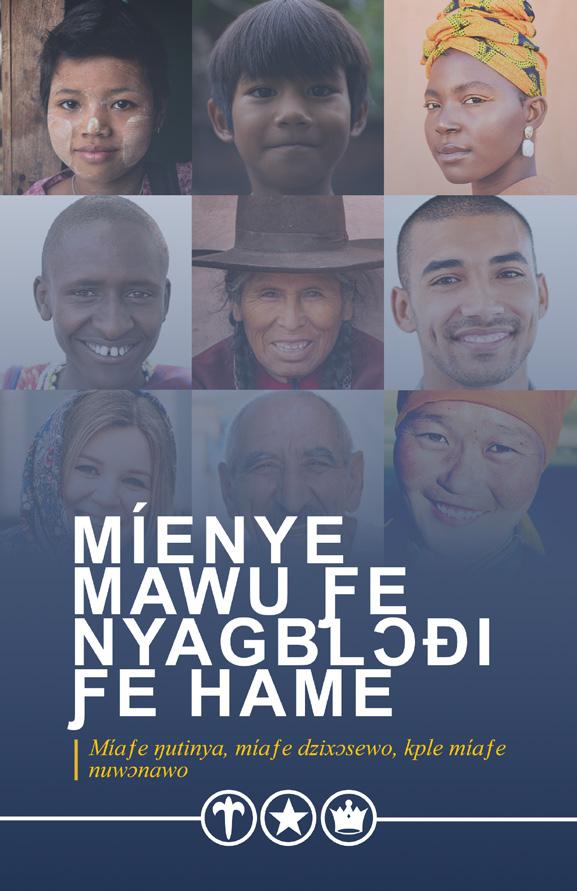
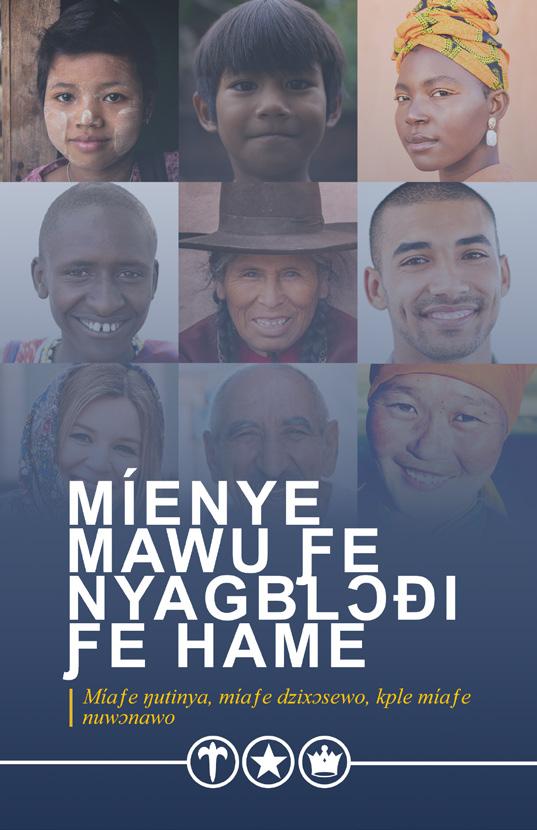
COGOP churches in Haiti are not just places of worship— they serve as community centers, schools, and relief organizations, helping those affected by poverty, natural disasters, and political instability. The Church’s presence has been especially crucial in times of crisis, such as earthquakes and hurricanes, where the Church of God of Prophecy has stepped in to provide food, shelter, and medical aid.
As Haitian communities have expanded across the world, so has the reach of the Church of God of Prophecy. COGOP congregations with Haitian Creole-speaking members can be found in North America (United States and Canada) and the Caribbean (Dominican Republic, Bahamas, Guadeloupe, Martinique, and beyond), as well as in Wider Europe (France and other parts of the Frenchspeaking world). As the Church of God of Prophecy continues to expand its outreach among Haitian Creole-speaking populations, it plays an essential role in spreading the message of hope, fostering unity, and supporting Haitian communities both in Haiti and around the world.
▼ The images below, received from Global Missions, are from the orphanage in Haiti.

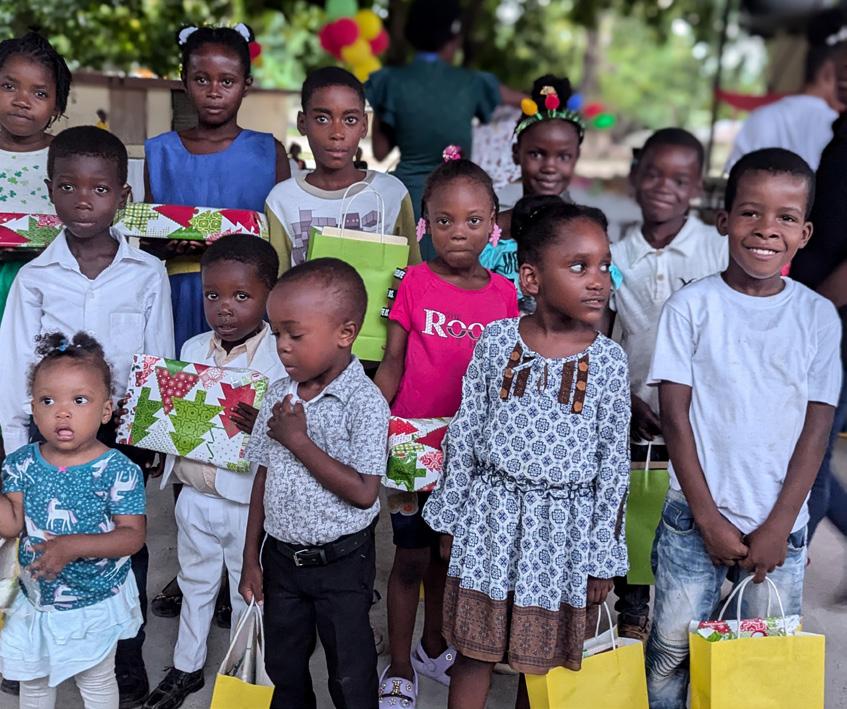
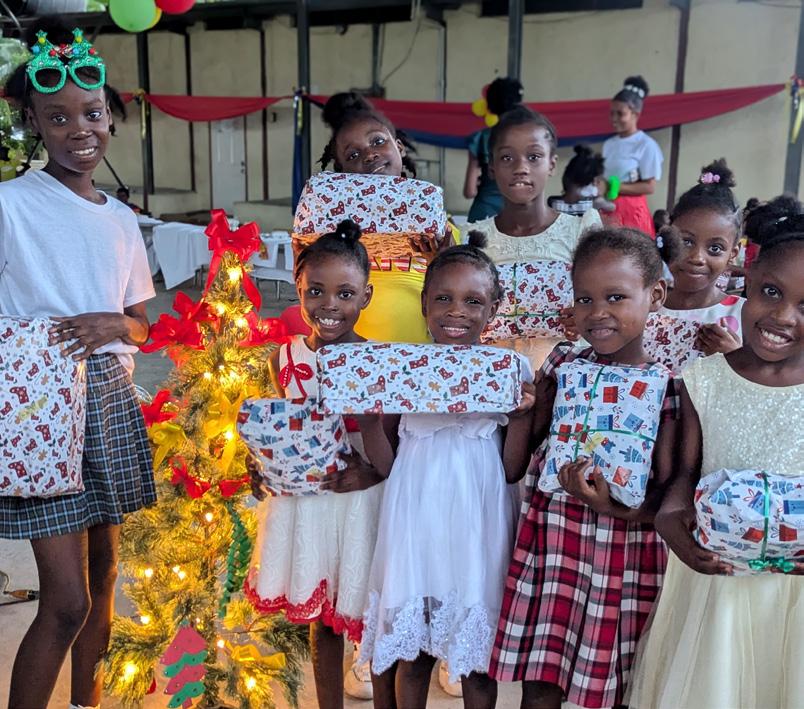



LIVING WORD
Many Bible verses speak on the authority of the Word of God. When we declare it in faith, there is a weight, a substance, and heaviness released in our spirit that manifests through our lives. Scripture declared in faith through the inspiration and revelation of the Holy Spirit is backed by the Living Word, Jesus Christ. We become the expression of the will of God through Jesus, the Living Word.
Moses understood the power and effect of words inspired by God when he said in Deuteronomy 32:1–2 (NKJV),
Give ear, O heavens, and I will speak; And hear, O earth, the words of my mouth. Let my teaching drop as the rain, My speech distill as the dew, As raindrops on the tender herb, And as showers on the grass.
As soon as the living Word of God flows through us, there is a change in our surroundings, a shift in the atmosphere, and an anticipation of heaven and earth as the sons of God, and God’s authority through them, are revealed (Romans 8:19).
The power of God’s spoken Word brings quickening in spirit and refreshment, and it changes the need of any situation, surrendering the spirit realm to his authority and presence.
In Deuteronomy 32:3–4, Moses testifies to the greatness and faithfulness of God when he proclaims God’s name:
For I proclaim the name of the Lord: Ascribe greatness to our God. He is the Rock, His work is perfect; For all His ways are justice,
A God of truth and without injustice; Righteous and upright is He.
There is power released through the declared Word of God. There is power in our proclamation of his name as we testify of his faithful love, mercy, and grace revealed through his covenant walk with us as individuals.
When we testify, the weight of the power of God’s presence as the I Am, and the authority of his Word over, in, and through our lives falls like dew in a parched land waiting on the revelation of people filled with fearless courage to conquer and reconcile the world to Christ, the Living Word, through the power of the Holy Spirit, and the word of our testimony.
On that note, let me testify!
In our household, we were taught from an early age to find our answers, needs, protection, and provision in the Word of God. Great emphasis was placed on praying, declaring, and proclaiming Scripture over circumstances as the Holy Spirit reveals. Infused in my personality and relationship with God, this has become a natural outflow of my daily life and ministry.
After every church meeting, the priestly blessing recorded in Numbers 6:24–26 is spoken over
The Lord bless you and keep you; The Lord make His face shine upon you, And be gracious to you; The Lord lift up His countenance upon you, And give you peace.
NUMBERS
6:24 – 26
the congregation. On March 8, I blessed the congregation as usual with the priestly blessing and everything the Holy Spirit had laid on my heart.
Just as we were about to conclude, I declared Isaiah 43:1–5 (paraphrased) over them as part of the blessing: “Fear not, God has redeemed you; you belong to him. He knows you by name. When you go through the rivers, the water will not overwhelm you, and when you go through the fire, the flame will not kindle on you; you shall not be burned or scorched. . . .” In addition, I specifically said, “One translation says you will not even smell like fire— because God loves you!”
Two weeks later, we had a power outage after our Sunday church meeting. Someone from the neighborhood came around, checked on everyone, and switched the grid back on. Afterwards, we heard an explosion every so often, but with all the strange things happening around us regularly, we did not give much attention to it.
On Monday morning, March 24, I realized our power was still off. I went to the power box and could hear the meter running, so I went outside the premises where the box is located to see what the problem was.
Lo and behold, the live wire to the pole was cut through the grid cover as someone had attempted to steal it. The box was running with no feed, so I took a stick and dropped the switch to off. My mom, who was standing on the inside of the gate, was talking to me, and as I had the cover open with my one hand, I started to explain to her the problem, describing the melted wires. I continued conversing on a plan of action, when the next moment there was a BOOM! The power cable exploded with me standing about one foot from it and looking straight at the box.
I immediately closed the cover and looked at my mom, who was ashen white, asking me repeatedly, “Are you all right?”
Even as I was entering the premises again from another gate, my mom looked at me as if she could not believe what she saw, again asking, “Are you okay?” I assured her I was.
She said, “The flames were on you; I saw you burn. Are you sure you are okay?”
And then I said, “Mom, smell my clothes. I don’t even smell like fire.” As soon as I said that, I was overwhelmed by the memory and realization of the scripture I had declared over the congregation just two weeks prior.
When I went to pray in the afternoon, I knew that the Word of God was alive in me. It was not on my lips. It was not absorbed by my eyes. It was not logically analyzed by my mind. The Word of God was written in love by God on my heart.
I could have been blinded, badly burned, or worse, I could have died, but the Word of God, Jesus Christ, kept me. I do not have any way of expressing my heart’s gratitude for his saving grace over my life.
I hope this testimony serves as an encouragement.
Keep declaring God’s Word over you and your family. It is alive and active; it will not return void, but it will accomplish what is pleasing unto God, as described in Isaiah 55:11 (AMPC):
So shall My word be that goes forth out of My mouth: it shall not return to Me void [without producing any effect, useless], but it shall accomplish that which I please and purpose, and it shall prosper in the thing for which I sent it.
We are active witnesses and expressions of God’s faithfulness when we declare his Word in faith. When God touches our lips and puts his Word in our mouths, he is alive and active over his Word, watching over it to be fulfilled soon and in due time.
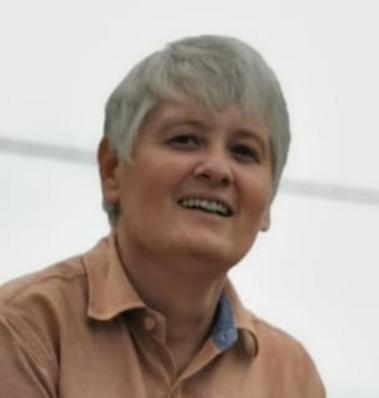
JANETTE LE ROUX EMMANUEL MINISTRIES BRAKPAN, GAUTENG, SOUTH AFRICA
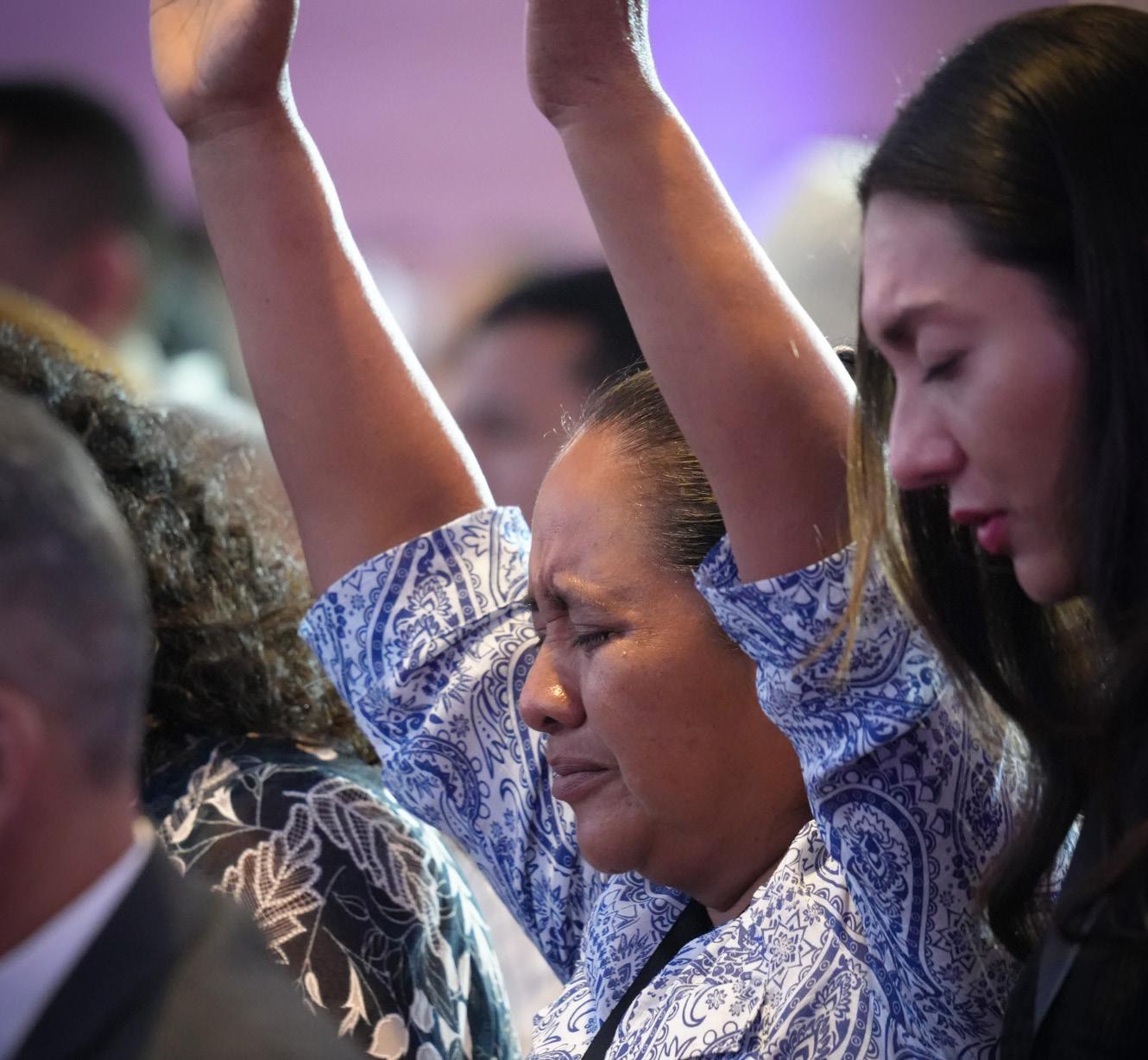
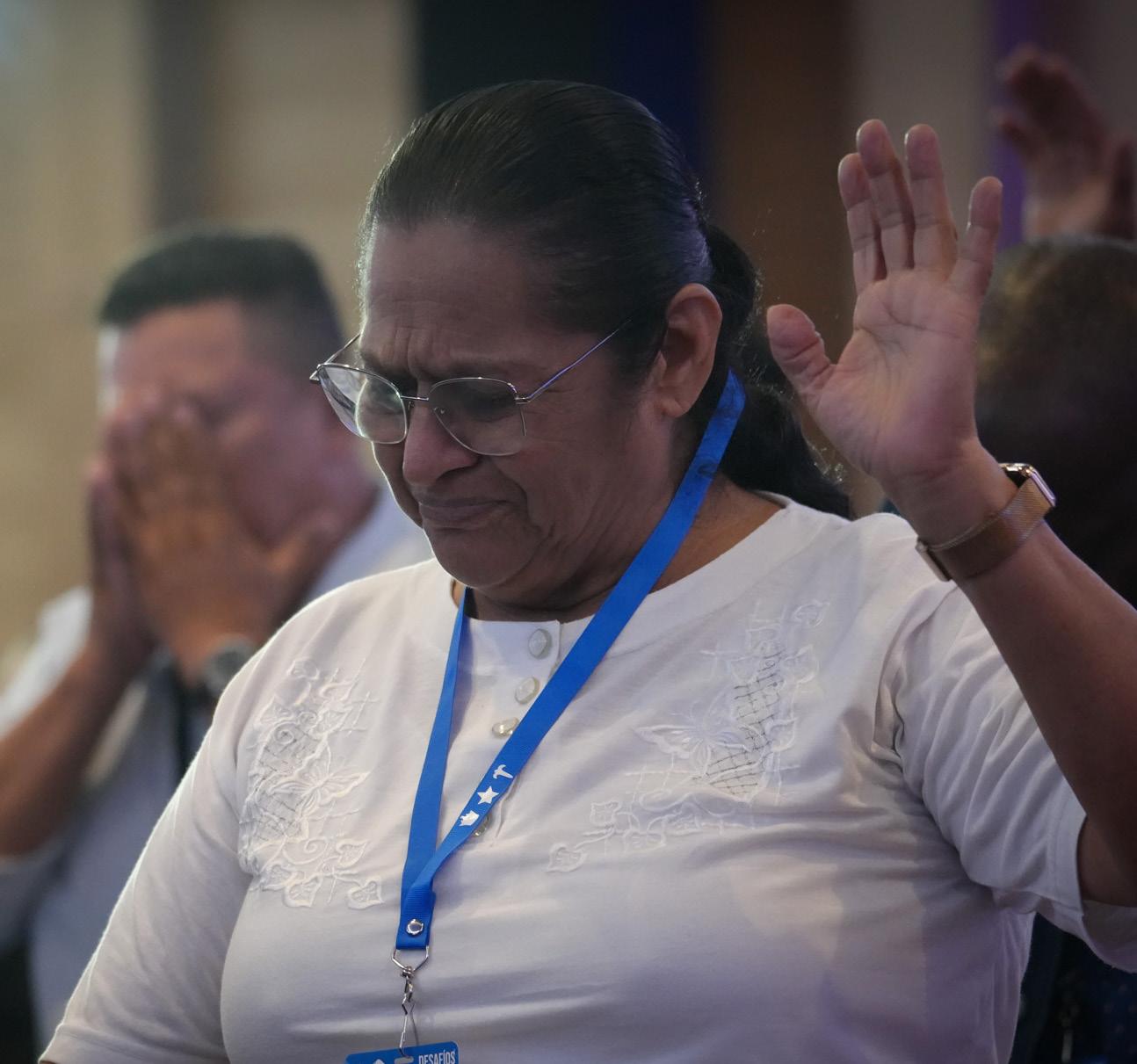
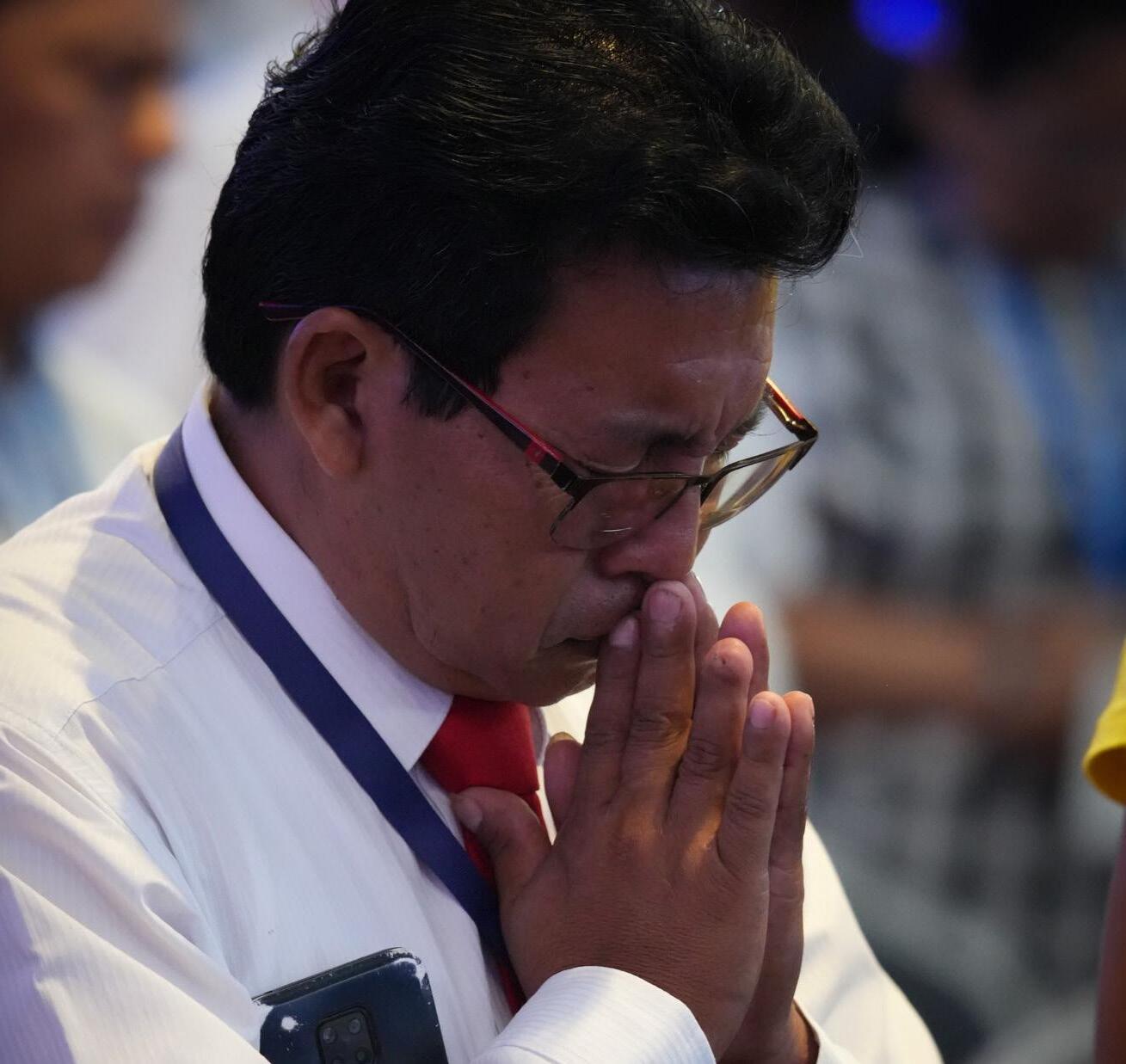

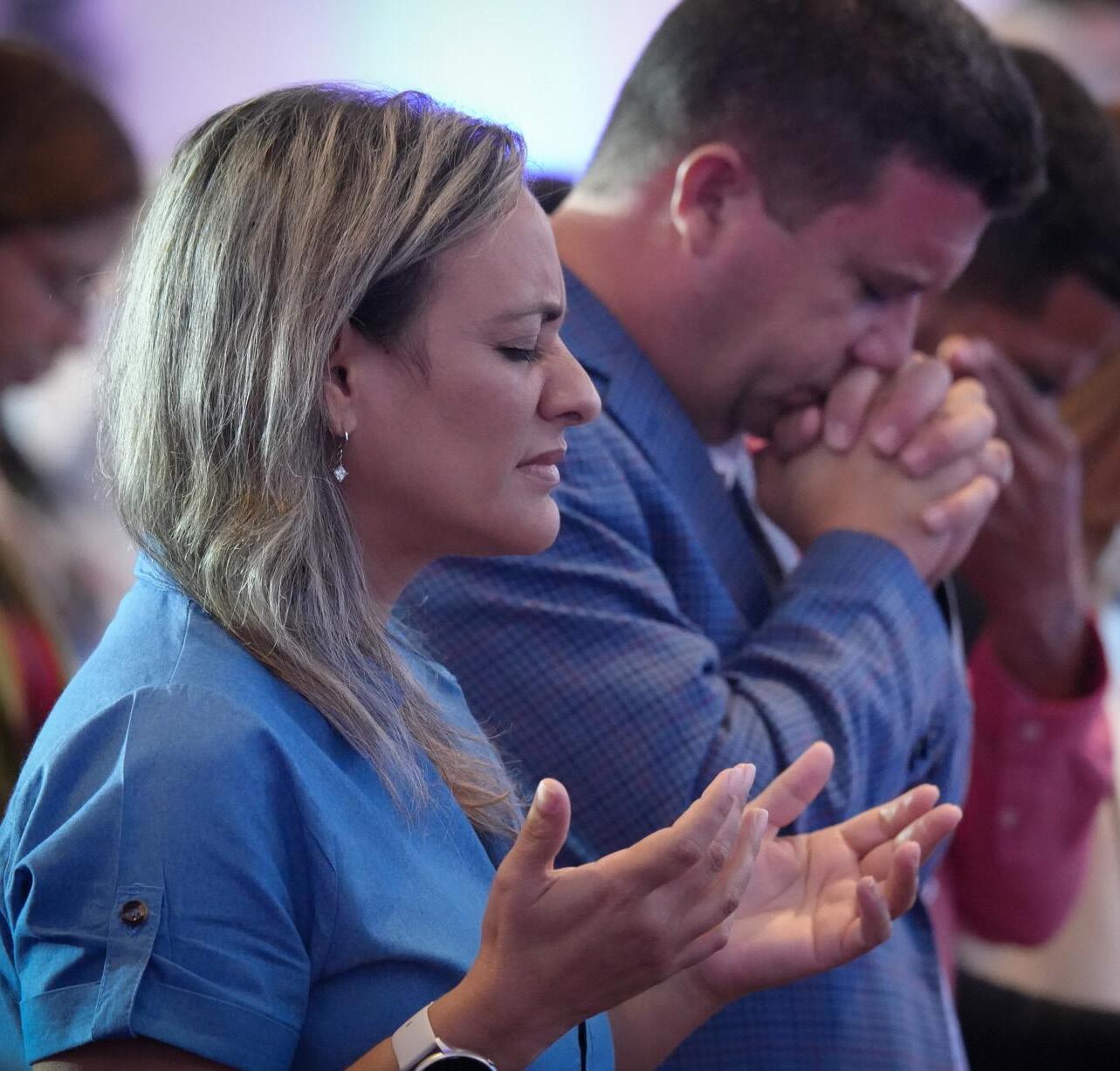
AMBASSADORS ON MISSION


AMBASSADORS ON MISSION
This article launches the first installment of a recurring column offered throughout the year by Global Communications. It is designed to equip pastors and leaders with biblical tools, practical resources, and Spiritled strategies for navigating the pressing cultural issues of our time.
The views and perspectives expressed in this column are those of the author and are offered to encourage dialogue and reflection. They do not necessarily represent the official theological positions of the Church of God of Prophecy or the White Wing Messenger.
The church today finds itself in a cultural moment marked by turbulence and tension. Conversations about gender, sexuality, abortion, immigration, digital culture, racism, consumerism, mental health, and pluralism, to name a few, dominate the headlines and spill into the lives of our congregations around the world. These are not abstract debates, but rather, they are deeply personal struggles faced by the people sitting in our pews.
Sadly, many pastors and leaders confess a growing unease in addressing these issues. Some are tempted to shrink back in fear of being misunderstood or maligned. Others react with outrage, thundering against culture in ways that alienate rather than reconcile. But neither fear nor fury reflects the mission entrusted to us as God’s people.
Paul reminds us in 2 Corinthians 5:18–21 that God “reconciled us to Himself through Christ and gave us the ministry of reconciliation” (NASB). He then adds, “Therefore, we are ambassadors for Christ, as though God were making his appeal through us.” Ambassadors do not retreat to safety, nor do they declare war against those to whom they are sent. Rather, they enter foreign lands with courage, carrying the message of their sovereign with both truth and grace.
This is the calling of the church today. We are to live as cultural ambassadors for Christ, commissioned by the King, empowered by the Spirit, and entrusted with the ministry of reconciliation.
Reconciliation at the Center
At the very heart of our ambassadorship is reconciliation. God is not distant from his creation. Though sin fractured the world, he has been on a mission, the missio Dei, to bring his children back to himself.
This is pure Pentecostal. The Spirit poured out at Pentecost was not given merely for ecstatic worship but for empowerment in bold witness. The tongues of fire symbolize a gospel that transcends cultural boundaries, meant for “every nation under heaven” (Acts 2:5). To be Spirit-filled is to be Spirit-sent.
In this light, Paul’s image of ambassadorship is striking. In the Roman world, ambassadors were sent with urgent tasks. They did not carry their own agenda but the message of their ruler, and they did not return home until their mission was complete.1 That is the picture of the church. We are a sent people, carrying the message of reconciliation until Christ returns or calls us home.
Cultural Confusion: A World in Search of Identity
The world we inhabit is restless. In his book, Strange New World, biblical scholar Carl Trueman observes, “Our culture has been fixated on the dual identity questions of ‘Who am I?’ and ‘Where do I belong?’”2 Without Christ, people scramble to answer these questions through sexuality, politics, consumerism, or self-expression, only to find dissatisfaction and despair.
⊳ COGOP AROUND THE WORLD The images featured on page 24 and page 27 are photographs from the Church of God of Prophecy, 2025 Cumbre Leadership Conference of Central America.


This confusion should not surprise us. Sin disorients, blinding people to their Creator and distorting the image of God. But here is where the church must resist fear. Too often, we have hesitated to engage issues like gender identity, sexuality, or mental health because of the fear—fear of lowering God’s standard, fear of appearing to approve of sin, fear of saying the wrong thing. But as Scripture reminds us, “Perfect love drives out fear” (1 John 4:18 NIV). Love liberates us to speak truth with compassion, rooted in the gospel’s promise of reconciliation.
The Posture of Ambassadorship
How, then, should pastors and leaders engage? Mark Yarhouse describes cultural ambassadorship as “convicted civility seasoned with compassion.”3 Each word here is vital:
• Conviction: Our foundation is the unchanging Word of God. The Bible remains our compass, our “true north.” The Bible remains steady, though cultural currents shift. Without conviction, we risk echoing the culture rather than proclaiming Christ.
• Civility: We engage not with arrogance but with humility. Paul reminds us that “all have sinned and fall short of the glory of God” (Romans 3:23). Recognizing our shared brokenness keeps us from assuming moral superiority.
• Compassion: We must see people not as “issues” to solve but as souls loved by God. We must acknowledge the reality of people’s struggles and extend Christlike empathy.
Jesus modeled this balance of truth and grace. He spoke the hardest truths, yet he welcomed sinners with open arms. For cultural ambassadors, conviction without compassion becomes harshness; compassion without conviction becomes compromise. Only the Spirit can hold them together.
Practical Strategies for Cultural Engagement
The calling to ambassadorship is lofty, but it is also immensely practical. Pastors and leaders can embody this mission through several Spirit-shaped practices:
1. Deepen Conviction: Know What You Believe
Cultural engagement begins with theological clarity. We must be grounded in Scripture and research trusted sources. Without depth, we risk parroting soundbites rather than offering the living Word. Study God’s Word diligently, seek the Spirit’s guidance, and draw from the wisdom of faithful theologians.
2. Understand the Times: Stay Informed
Ambassadors learn the language and customs of their host country. Likewise, we should stay informed about cultural trends and local issues. As Stetzer writes, “We need to study our culture like ambassadors so we can effectively show and share the gospel.”4 This is not capitulation; it is contextualization for mission.
3. Engage Prayerfully
Cultural conversations are not neutral. They are spiritual battlegrounds. The enemy “prowls around like a roaring lion” (1 Peter 5:8), seeking to devour. Prayer is therefore essential, aligning us with God’s Spirit and disarming fear. Before cultural engagement, fall to your knees. Ask for wisdom and be open to the Spirit’s direction.
4. Begin with Questions
Rather than leading with declarations, start with thoughtful questions for those to whom you seek to minister, engage, or enlighten. Questions disarm hostility and invite dialogue. They help uncover underlying worldviews, often exposing inconsistencies without direct confrontation. Jesus himself frequently asked questions to draw out faith and expose the heart.
5. Share Equal Ground
Avoid approaching others as though standing on moral high ground. Both you and the person before you are sinners in need of grace. This humility removes barriers and builds trust.
6. Relate to Shared Humanity
Frame issues in light of universal brokenness. Sin is not limited to one group; it infects all humanity. By presenting cultural struggles

7. Keep the Gospel Central Arguments cannot redeem; only the gospel can. Paul declared that God has “committed [entrusted] to us the message of reconciliation” (2 Corinthians 5:19). The gospel is not one issue among many but the foundation for every conversation.
8. Lead with Love
Love is the defining mark of an ambassador. Author Rebecca McLaughlin exhorts us to fight “with the weapon God has given us: selfsacrificing, unrelenting love.”5 Love is what opens doors, softens hearts, and points to the love of Christ.
The Spirit-Empowered Ambassadors
What distinguishes a Pentecostal approach to cultural ambassadorship is the conviction that the Spirit who raised Christ from the dead dwells in us (Romans 8:11). The Spirit is not an accessory to mission but its very engine.
The early Pentecostal movement spread rapidly because it believed the Spirit empowers ordinary believers to witness across cultures. That same Spirit still equips us today. He gives courage in our fear, wisdom in our uncertainty, and compassion in our hardness.
Cultural conversations are rarely neat. They require patience, discernment, and resilience. But the Holy
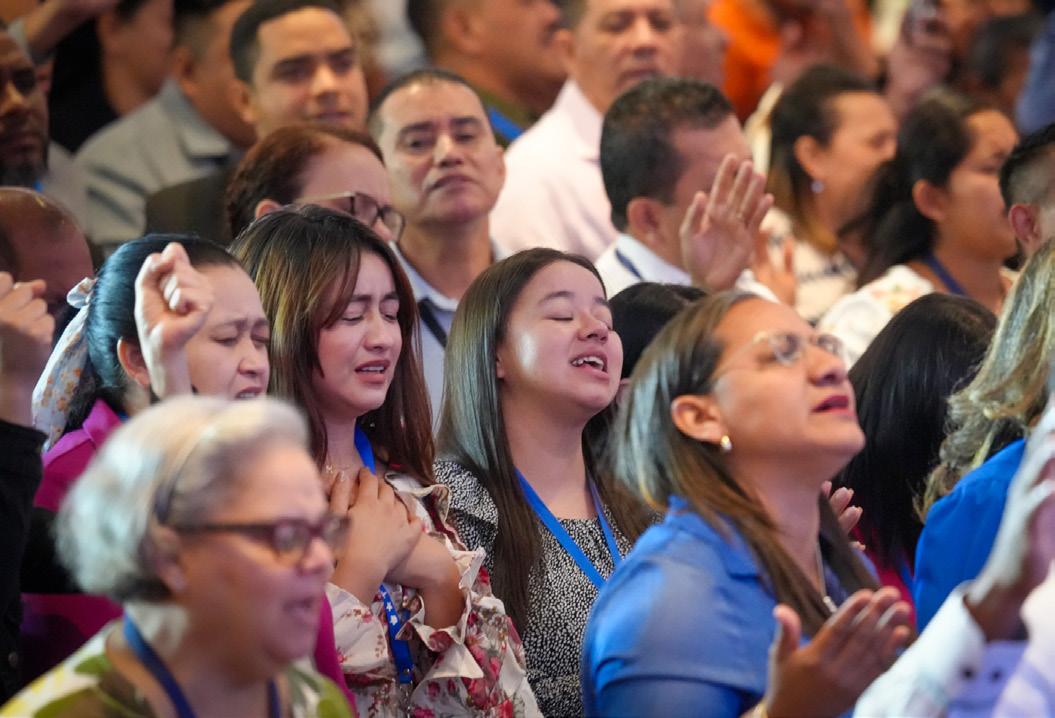
Spirit enables us to persist with spine and heart, embodying Christ in both word and deed.
Faithful Until He Comes
Many of us find ourselves in a new, chaotic, and uncharted-era world. Yet this is not a time for despair. It is a time for sharpening our identity as people of the Spirit, chosen for this era, sent on mission, and empowered for reconciliation.
Pastors and leaders, we are not at war with culture, nor are we capitulating to it. We are ambassadors sent into it. We are citizens and representative of a heavenly kingdom, entrusted with the King’s gospel.
So, take courage. Learn the language of culture. Ask thoughtful questions. Lead with love. Trust the Spirit who empowers you. And above all, keep the gospel at the center.
The world is desperate for ambassadors who will represent the King faithfully until he comes again. May we be found faithful.
1 Ed Stetzer, Christians in the Age of Outrage: How to Bring Our Best When the World Is at Its Worst (Carol Stream, IL: Tyndale Momentum, 2018), 170.
2 Carl R. Trueman, Strange New World: How Thinkers and Activists Redefined Identity and Sparked the Sexual Revolution (Wheaton, IL: Crossway, 2021), 186–187.
3 Mark Yarhouse, Talking to Kids About Gender Identity: A Roadmap for Christian Compassion, Civility, and Conviction (Minneapolis, MN: Bethany House Publishers, 2023), 27.
4 Stetzer, Christians in Age of Outrage, 177.
5 Rebecca McLaughlin, The Secular Creed: Engaging Five Contemporary Claims (Austin, TX: The Gospel Coalition, 2021), 107. within the broader context of human fallenness, we prevent stigmatization and highlight the shared need for a Savior.
BISHOP SHAUN MCKINLEY, PHD GLOBAL COMMUNICATIONS EXECUTIVE DIRECTOR
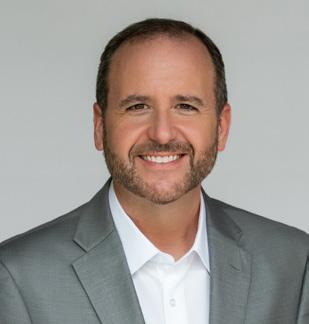

One Child Fund
School Tuition Thanks
At the beginning of June, we sent much-needed school tuition funds to all our orphanages that have school-aged children. In this newsletter, you will find their heartfelt thank-yous.


HAITI
We are truly grateful for your donation to the school—thank you! Your relentless efforts to sustain the children’s home and extend its blessings to more children are deeply appreciated.
It is an honor for us, as beneficiaries of this ministry, to serve our brothers and sisters. Thank you for entrusting us with the leadership of this important work.
Please know that you are valued, appreciated, and loved. Thank you for your continued investment, labor, and ministry.
Many blessings, Leadership Team

INDIA
On behalf of everyone at Mission Home for Children in Andhra Pradesh and Grace Mission Orphanage in Nagaland, I extend our deepest gratitude for your generous support. Your timely assistance has made a meaningful difference in meeting the needs of our children and ensuring they continue to receive the care and education they deserve.
Your willingness to help with this precious project is truly a blessing. The impact of your kindness will be felt for years to come, as it enables us to build a brighter future for these young lives.
Thank you again for your compassion and commitment. We are incredibly grateful to have you as part of our community.
With heartfelt appreciation,
Bishop Joshua Wijonamai India National Bishop
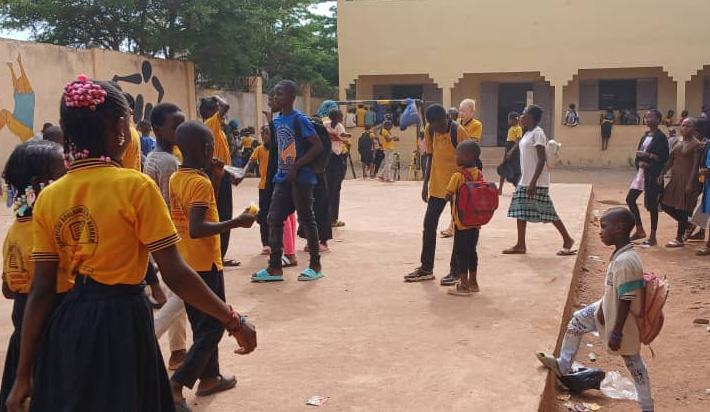
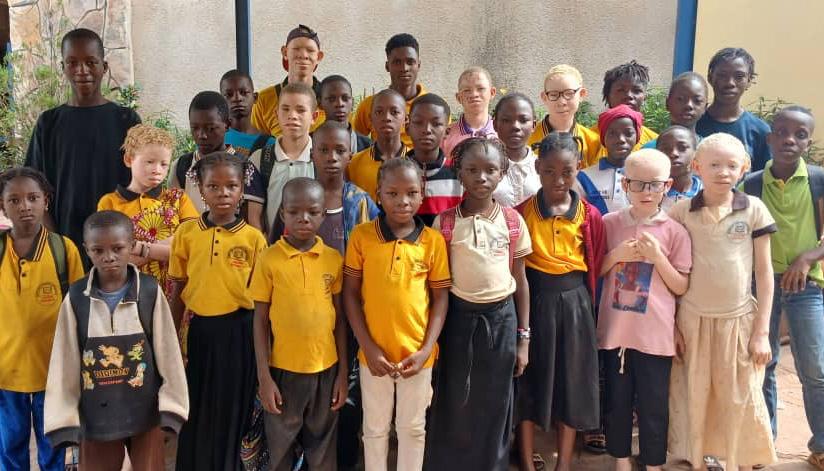


INDONESIA
Thank you so much for helping us with our school fees. We received the funds and were able to pay all their tuition. We thank God for your timely support, which allowed all our children to take their final exams without delay.
MALI
Thank you so much for covering the school fees for our children!
We are just a few days away from the end of the school term, and classes will resume in October.
We truly appreciate your support!
Moussiane Joseph Mali Administrative Assistant

MYANMAR
On behalf of our orphanage centers, we express our heartfelt gratitude for your generous contribution to the children. Your support is having a profound impact on meeting their daily needs and creating positive change.
Your love and generosity encourage our children to grow in the grace and knowledge of our Lord and Savior, Jesus Christ.
We sincerely appreciate your patience and understanding of our situation. After five years under armed rule, Myanmar remains in conflict, grappling with political instability and a deepening humanitarian crisis. The COVID-19 pandemic and post-coup turmoil have severely damaged the economy. Tragically, the number of orphans has increased as more parents have lost their lives in the civil war, and we have been compelled to welcome them into our care.
By God’s grace and through your prayers, all our children will attend public school starting June 2, 2025. With rising commodity prices, their needs continue to grow. Words fall short in expressing our gratitude, but we deeply appreciate your continued support during these challenging times.
With sincere thanks, Chin Kang Mon Myanmar National Bishop

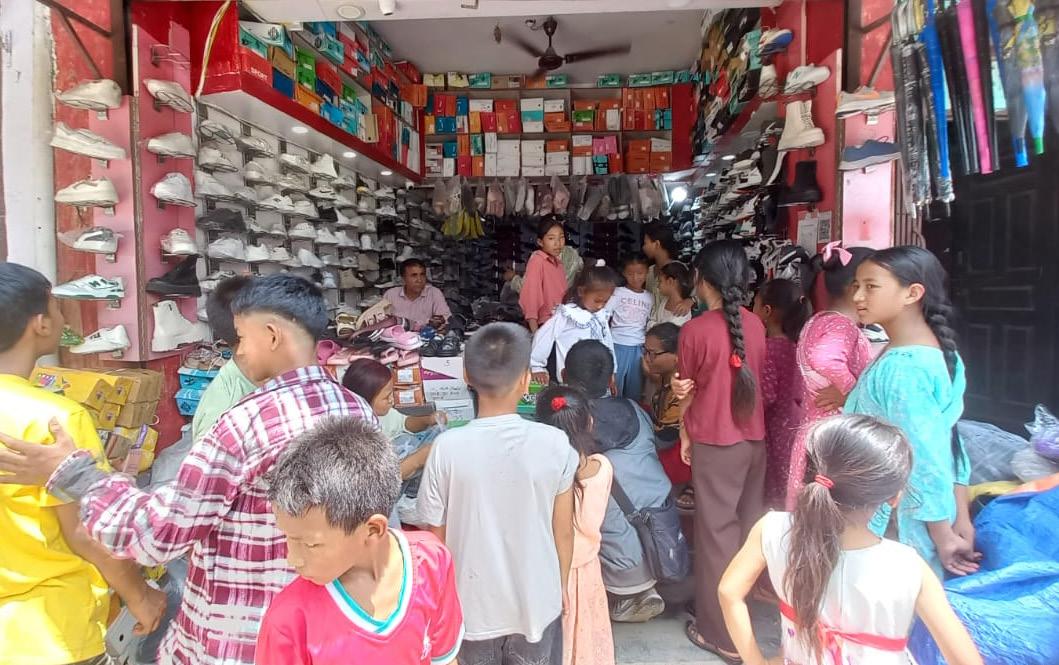


NEPAL (Click to watch video greeting)
Greetings and shalom in the glorious name of Christ Jesus.
First, I give thanks to our Almighty God. Second, I thank all the Harvest Partners and One Child Fund families around the world. We are continually grateful for your help, support, prayers, and love for our two children’s homes in Nepal.
I am truly thankful for each blessing we receive through One Child Fund. It enables us to operate our orphanage and care for these children. I receive each gift with a grateful heart. I fully support your decisions and rejoice every time you send support. Whether it is a dollar or more, it brings us joy, and I pray God blesses you abundantly.
We are working together to raise future leaders—pastors and evangelists for the Church of God of Prophecy. This is our goal and prayer. When these children grow and serve the Lord, we will rejoice together, knowing that today’s investment has become a meaningful legacy.
My prayer is that God will walk with each of you in every step of your lives and use you more and more as you serve him.
I love to share updates—about the children’s home, conversions, baptisms, or any progress in the kingdom. It is my privilege to report so you may join us in prayer.
Thank you once again to all my respected and honorable brothers and sisters in Christ. Though we are far apart physically, we are united in prayer.
You are in our daily prayers. God bless you all.
In His service, Gopal Lama Nepal National Bishop

RWANDA
Greetings from Rwanda in the name of Jesus Christ.
On behalf of the Church of God of Prophecy in Rwanda and the children in our care, I want to express our sincere thanks for your generous $1,000 donation as part of the One Child Fund’s back-to-school support.
We recognize the challenges of maintaining monthly giving and deeply appreciate your continued commitment to the children, even with limited resources. Your faithful stewardship of every designated and general gift is humbling and inspiring.
This timely support will help us provide school uniforms and supplies as the new school year begins. We are especially thankful for your consideration of our context here in Rwanda, where we support our own school on national church property.
In the coming days, we will share photographs of the children in their uniforms and preparing for school. It is an honor to be part of the wider mission of the Church of God of Prophecy, transforming lives through compassion and action.
Please convey our deepest thanks to everyone at One Child Fund and to all who give sacrificially to make this work possible. We are praying for you and remain committed to stewarding every gift with integrity.
May God bless you richly as you continue serving his kingdom.
Bishop Redias Nkundabera
Rwanda National Bishop

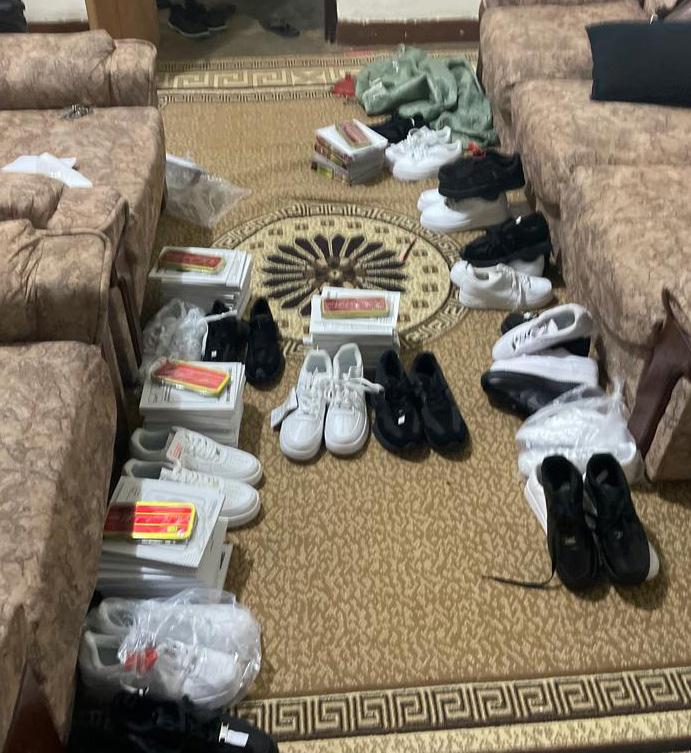
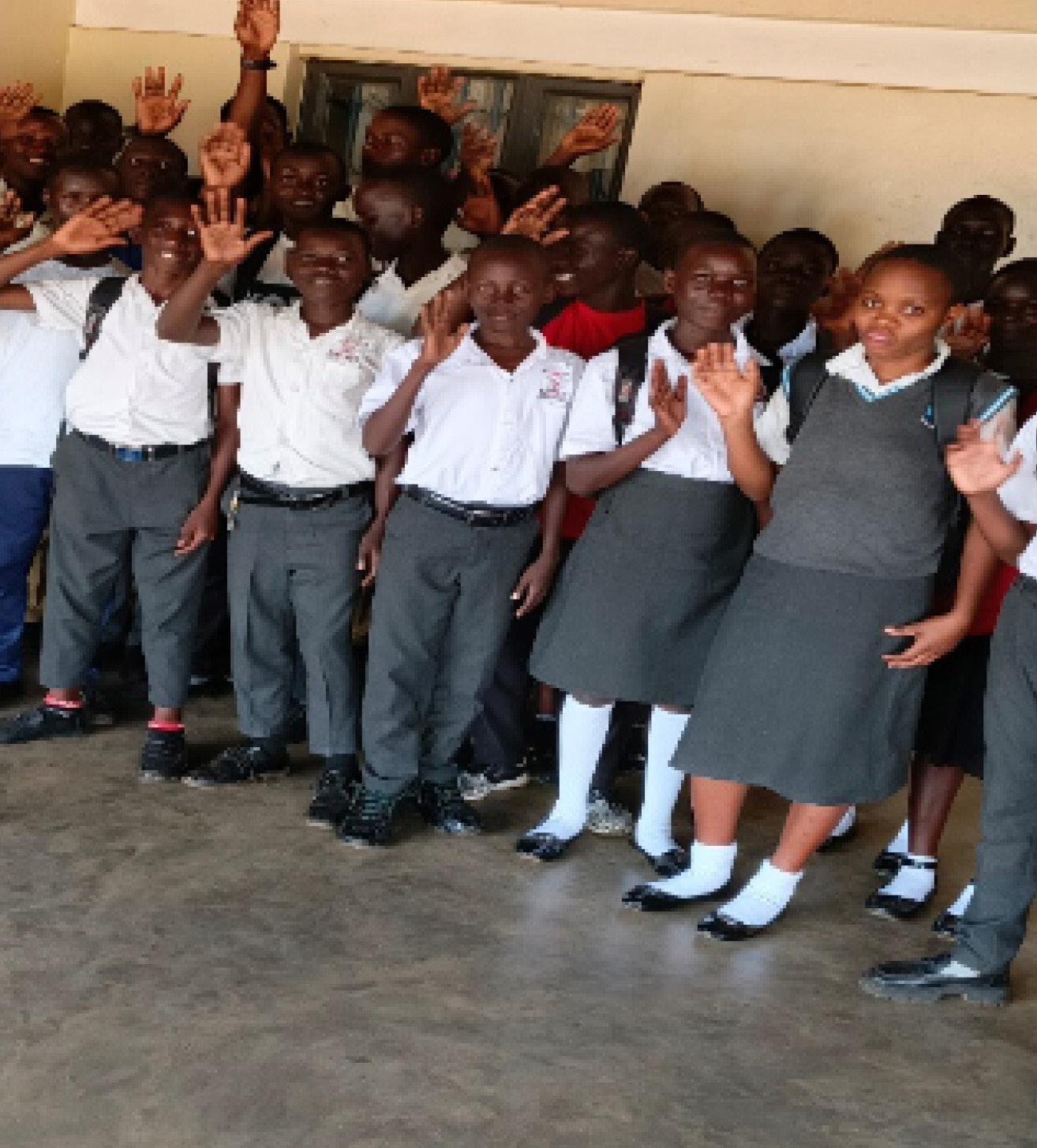

UGANDA
Greetings in the name of our King and our Living Hope!
On behalf of the House of Mercy and other orphanages in Uganda, we extend our heartfelt thanks for your generous support.
We are deeply grateful for the tuition assistance you have provided for all our children in both primary school and high school. As requested, we have enclosed a photo of the children as they return to school.
May God richly bless you and reward you for your faithfulness and hard work. We thank God for your ministry and celebrate each of you with joy. Alleluia!
Bishop James Ntezimana
Uganda and South Sudan National Bishop


ALL NATIONS CHURCH
A Church for All People of Every Tribe and Tongue
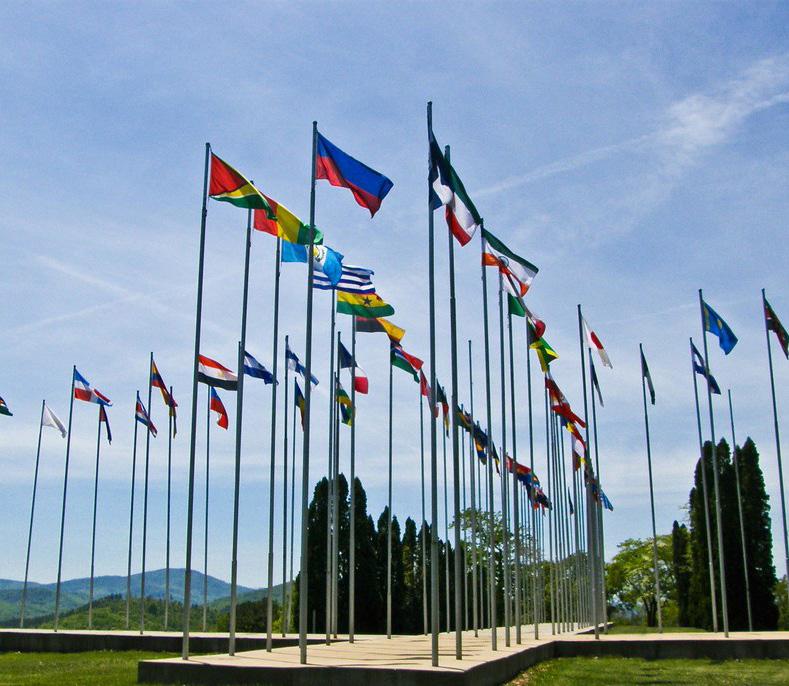

Our church, from its earliest inception, has been a church for all people. Founded on a holiness theology by earnest seekers of the true church of the Bible, the Church of God of Prophecy adopted the philosophy that the message of the gospel is for all people everywhere. This worldwide vision permeates the visionary leadership of Bishop A. J. Tomlinson and other early church leaders through the years. This vision still lives within our global church movement—we are an ALL NATIONS CHURCH.
In browsing the historical archives of our movement, we see the actions and read the sermons preached that reflect an equality among all people in the sight of God. The reality that we are all created in God’s image and likeness and can accept God’s salvation has been a key part of our theology and resonates with Paul’s words in Romans 10:12–13.
As early as 1909, Bishop Tomlinson ordained African American evangelists, both male and female. He had traveled to Florida to speak in numerous locations. In one of the meetings held at Pleasant Grove, Edmund and Rebecca Barr accepted Tomlinson’s message of the Church of God. This event was the beginning of change to the racial landscape of the Church. Not long after joining the Church of God, the Barrs became the first Black licensed ministers. This couple traveled to the Bahamas and evangelized there, making them the first missionaries to go outside of the United States for this small but growing movement.1
Bishop Tomlison went on to ordain bishops of various races, thus placing them in the highest level of ordination within the movement and solidifying the reality that we are an “all nations” church. Bishop Tomlinson believed, preached, and practiced that the message of God’s church was for all mankind, regardless of ethnicity, color, or language. In the early years of this movement in the United States South, this was often quite challenging due to certain laws that had been enacted that promoted segregation. Yet, despite these challenges, R. G. Robins would later describe the efforts of Bishop Tomlinson and the Church in his work entitled A. J. Tomlinson: Plainfolk Modernist, writing, “The sign
of the True Church, then, was to be its multicultural composition.” He continued, “Recruitment was not easy, but the Church of God did its best, and when it found minorities it thrust them into the limelight.”2
At the 14th International Assembly, in his Annual Address, Bishop Tomlinson spoke on this topic of inclusion of all believers when he stated,
Every subject on the program is of the utmost importance. But it is not expedient for me to call attention to everyone separately, however I feel it my duty to mention one more. We have deviated from our former practice by giving a place on our program for our colored brethren. We have recognized them and loved and fellowshipped them as brothers and sisters and members and given them opportunity for extemporaneous utterances, but this is the first time they have been given a representation on the program. We feel they are due this recognition. They are truly our brethren.3
As he continued to speak, there were shouts from all across the auditorium. There were some shouts of agreement mixed with shouts from those who were not accepting his comments. Despite these shouts, records indicate that Tomlinson proclaimed, “Let the Devil’s prejudice forever disappear and yet, let us ask God for wisdom about how to do.”4
The topic of racial inclusion was addressed repeatedly by Bishop Tomlinson over the next twenty years. His addresses on the topic would expand to include Latinos and others. These addresses were not the beginning of his thoughts and beliefs for racial inclusion. As mentioned earlier, even before this and the corresponding addresses, he was ordaining leaders of all ethnicities. This represented a departure from the norm of the South during this time period, but it reflected the heart of God and the truth of God’s Word—God’s church was a church for all nations
The promotion of ethnically diverse men to higher positions in the Church represented Bishop Tomlinson’s “all nations” response and was indicative of the acceptance of God’s call for all

people. He believed that the church was a place where all people groups could worship freely and experience the powerful presence of God in their lives and ministry, but this belief did not go without its challenges. Through the years, there were times of exhaustion and contemplation about giving up on this “all nations” effort. At one point, there was a separate entity for the “Church of God Colored Work.” However, in the 1926 Assembly, the question was brought to the Assembly floor, and after discussion, the Questions and Subjects Committee deferred to the General Overseer A. J. Tomlinson for a decision. His decision was to end the segregated work and operate once again as one distinct body. This decision would lead to a more robust multiracial church. Such inclusion broke from the societal norms of the southern United States and has led to who we are today, a church for all nations
Through the years, this movement has continued its “all nations” emphasis. The result is what we now know as an international body of believers from over 130 nations of the world, speaking multiple languages, having varied colors of skin, yet united in one body through Jesus Christ, our Lord and Savior.
Today, we live in a world that attempts to divide us not only on racial differences, but also on cultural, business, familial, and social “likes” and “dislikes.” In this environment, let the Church be ever mindful that we are a body of believers that sees all nations as vital to our global movement. Let us remember the words of Paul in Romans 10—salvation is for all who will trust in the Lord and believe in their heart that Jesus Christ is the Messiah.
Let us reflect on the vision recorded by the writer of Revelation:
. . . I saw a vast crowd, too great to count, from every nation and tribe and people and language, standing in front of the throne and before the Lamb. They were clothed in white robes and held palm branches in their hands. And they were shouting with a great roar, “Salvation comes from our God who sits on the throne and from the Lamb!” (Revelation 7:9–10 NLT)
We are an ALL NATIONS CHURCH. We must be compassionate to all people. We must be intentional to love them as Christ would love them, and care for them as he cares for us.
One of my greatest pleasures in ministry was my time pastoring a truly international church in Erlangen, Germany. At one time within that local church, we had every continent represented except Antarctica. Yes, it had its challenges. But it also had such great rewards. We learned from one another. We experienced each other’s cultural understandings. We cherished the delicious foods from all nations. We embraced one another. We stood together as one in our Lord and Savior Jesus Christ. And today, we have family in every part of the world because of the “all nations” community of our church.
The Church of God of Prophecy heritage is a “Church for All Nations.”
1 Christopher Kinder, “‘Let the Devil’s Prejudice Forever Disappear’: Race and Inclusion in A.J. Tomlinson’s Church of God” (master’s thesis, Southeast Missouri State University, 2014), 42, https://www.dixonprc.org/uploads/1/3/1/6/131606484/chriskinder_thesis_cgp.pdf.
2 R. G. Robins, A. J. Tomlinson: Plainfolk Modernist (New York: Oxford University Press, 2004), 227, quoted in Kinder, 26.
3 A. J. Tomlinson, “Ninth Annual Address to the 14th General Assembly-Oct. 30-Nov.4, 1919—Cleveland, TN,” in General Assembly Annual Addresses, 1911-1927 (Cleveland, TN: White Wing Publishing House, 2011), 104–105, quoted in Kinder, 31.
4 Minutes of the Fourteenth Annual Assembly of the Church of God, Held at Cleveland, Tenn., Oct. 29–Nov. 4, 1919 (Cleveland, TN: Church of God), 21, part of Minutes of the General Assembly of the Church of God (1911-1954) Collection, Hal Bernard Dixon, Jr. Pentecostal Research Center, Lee University, quoted in Kinder, 31.
BISHOP TODD D. BAGLEY FINANCE & ADMINISTRATION EXECUTIVE ASSISTANT AND HERITAGE MINISTRIES COORDINATOR
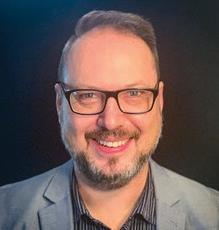
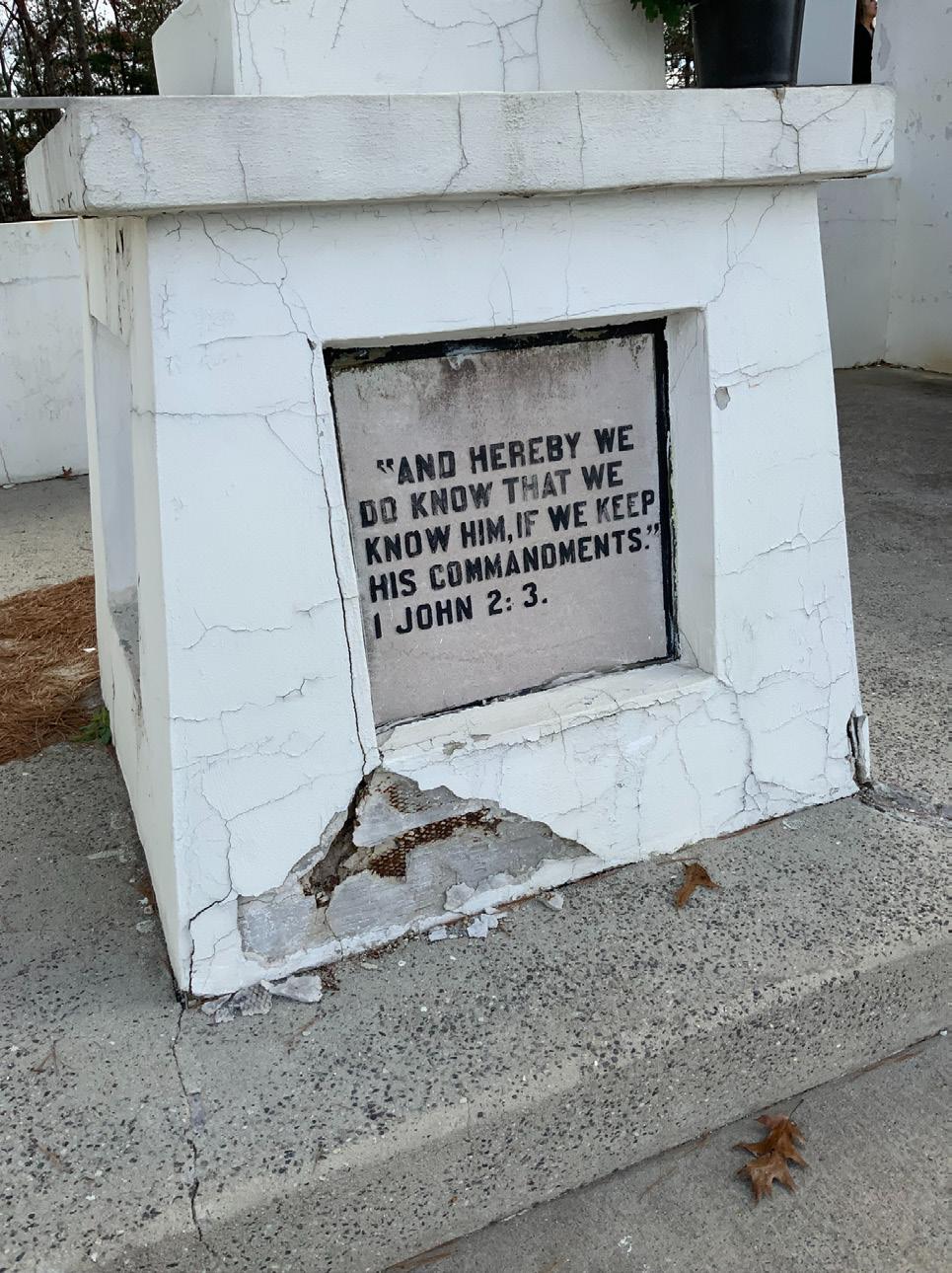
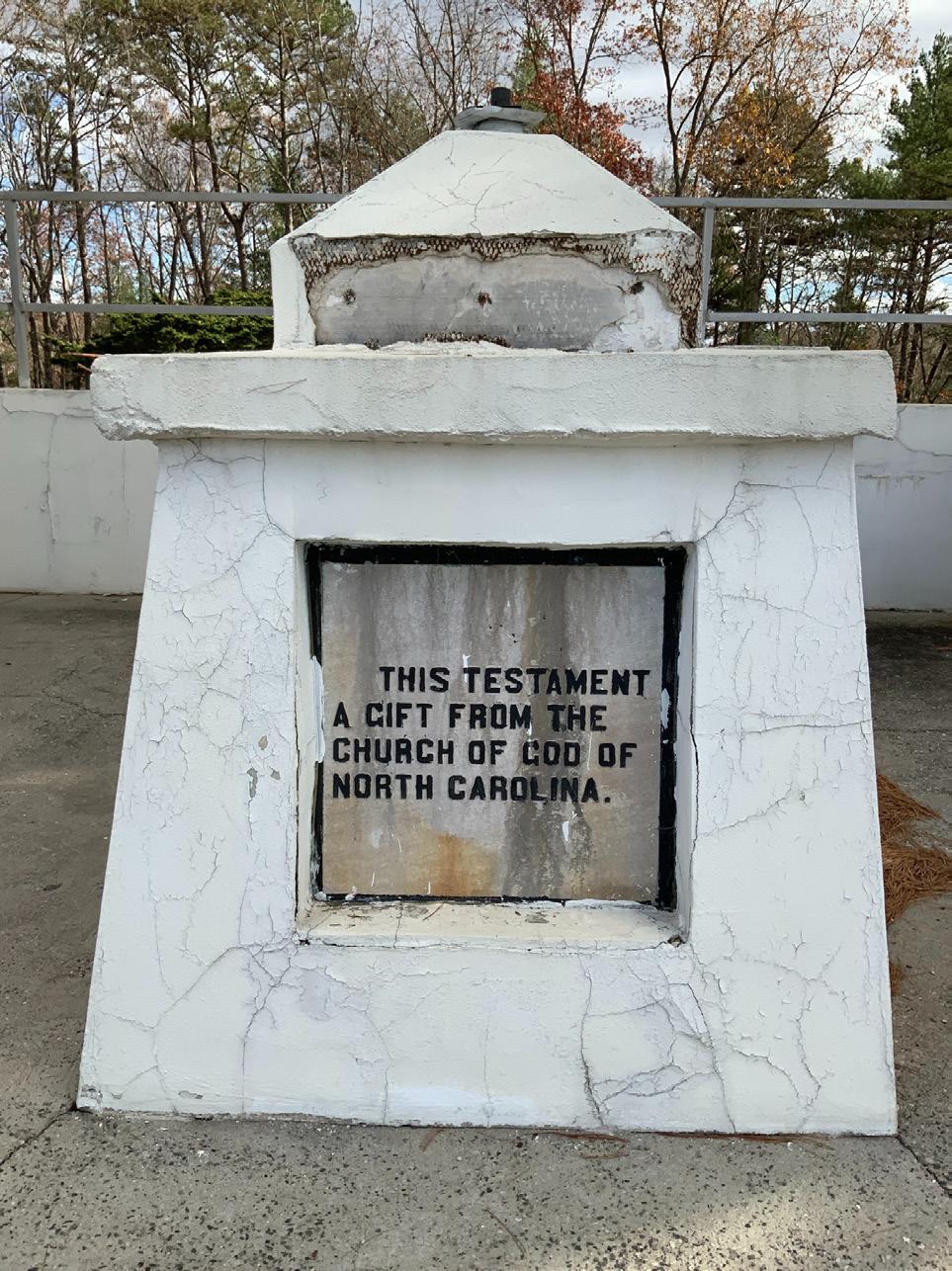

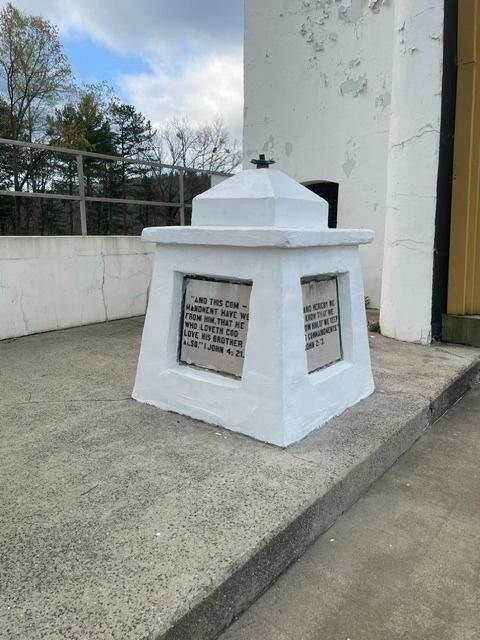
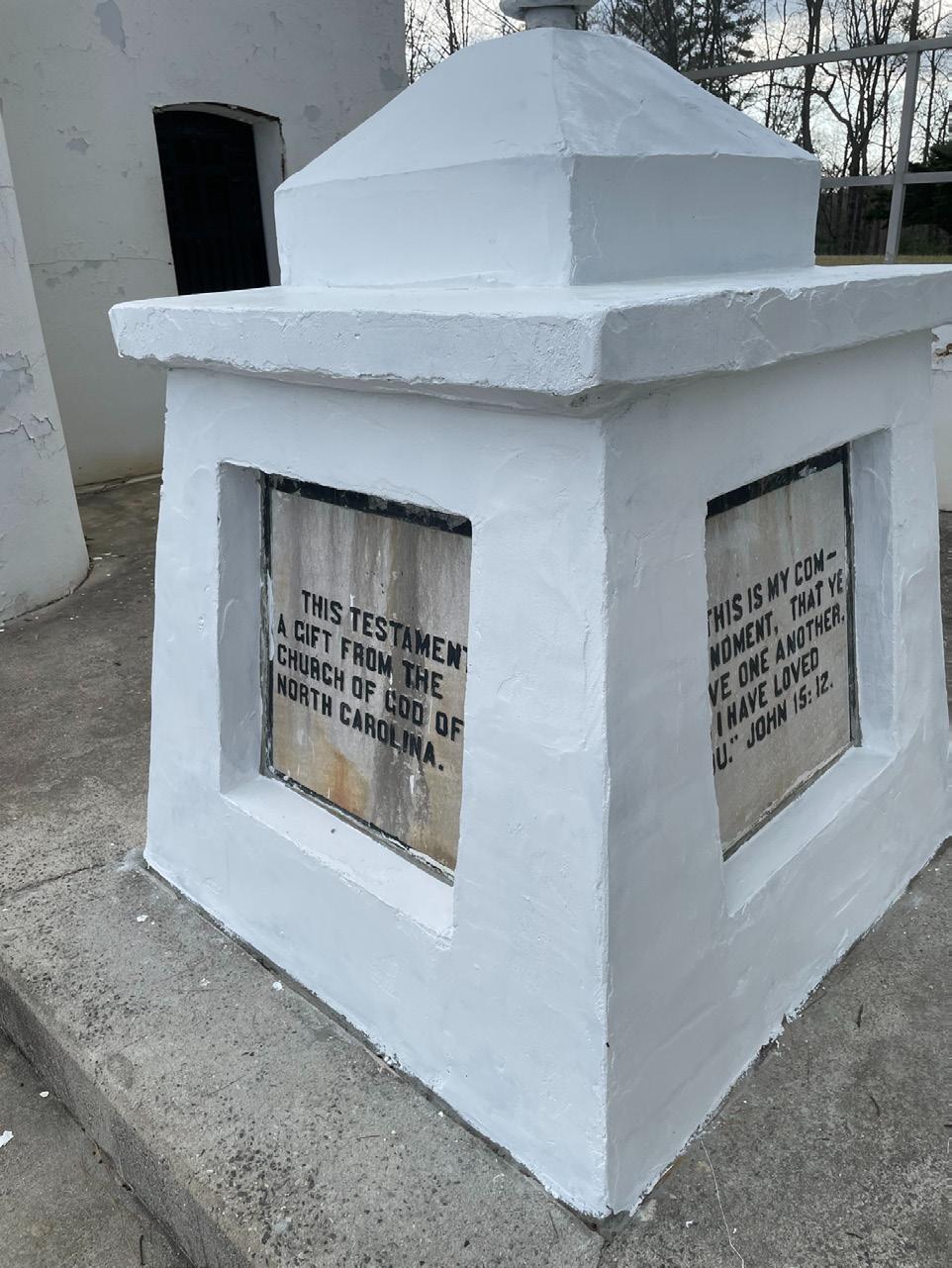
TESTAMENT RENEWAL
DONATE NOW AND HELP WITH REVITALIZING OUR PARK!

Above is a representation of two monuments that were recently renewed at the park. This process involved removing layers of stucco, getting back to original concrete, and then applying new stucco and paint. We are grateful to our supporters who are helping us accomplish FOWRENEW, one testament at a time.


Discipleship: A Commitment to Our Transformation
JESUS KNOWS HIS DISCIPLES | PART 2
The objective in Part 2 of this series deals with Jesus’s knowledge of those whom he calls. It is essential to remember, before going on, that discipleship done the way Jesus did it is not a momentary event but a lifelong commitment.
According to the Gospel of John, Andrew and another disciple were the first to follow Jesus after hearing John the Baptist proclaim, “Behold, the Lamb of God!” (John 1:36). John the Baptist understood that his mission was to point to Jesus as the Lamb of God and that it was Jesus who was to be followed. John’s statement was enough for these two men to decide to leave him and begin to follow Jesus (John 1:37, 40).
As Jesus was walking along, he suddenly saw that he was being followed by two men. John 1:38–39 (NKJV, emphasis added) states,
Then Jesus turned, and seeing them following, said to them, “What do you seek?” They said to him, “Rabbi” (which is to say, when translated, Teacher), “where are You staying?” He said to them, “Come and see.” They came and saw where He was staying, and remained with Him that day (now it was about the tenth hour).
There are five notable verbs and one title in this passage that show the intentionality, seriousness, and commitment of transformative discipleship: follow, see, seek, Rabbi, come and see, and remain.
The verb follow, akoluthein, is “strictly limited to discipleship of Christ.” In this act of following, “the disciple leaves everything to go after Jesus (Mark 10:28).” In this following of Jesus, all other ties are broken. The bond with Jesus even surpasses family
ties (Matthew 8:22; Luke 9:61). “The exclusivity of the use of akoluthein in the New Testament arises from the fact that for early Christianity there is only one discipleship, and therefore only one following, namely, the relationship with Jesus. Jesus’ demand when he calls us to follow him is a messianic demand.”1
Akoluthein (follow) means participation in the salvation offered in Jesus. This following is a decision not to look back after putting one’s hand to the plow. He who looks back is not fit for the kingdom of heaven (Luke 9:61–62). This following also entails “participation in the destiny of Jesus.” In Matthew 8:19–20, Jesus responded to the one who volunteered to follow him, “Foxes have dens and birds have nests, but the Son of Man has nowhere to lay his head” (NIV). Participating in Jesus’s destiny entails denying oneself, taking up one’s cross, and following him (Mark 8:34). Following Jesus is “a communion of life and suffering with the Messiah that arises only in the communion of his salvation.”2
Following Jesus is not an emotional or momentary affair. Following Jesus is a lifelong commitment through which we decide to give everything to him.
The next word to look at is the verb “to see.” In John 1:38, it says that when Jesus noticed that the two disciples were following him, he turned to look at them. This particular verb (theáomai) “denotes astonished or attentive vision, to look (at or upon), to contemplate.”3 It highlights the fact that Jesus stopped to pay attention to these two men who were following him. This verb speaks of “fixing one’s eyes in a steady and intense gaze, often with enthusiasm or studious attention.”4 Jesus stopped to study these two men. Many people
cannot withstand a direct gaze into the eyes, especially those who have something to hide. If you can withstand a direct gaze, it is because you are confident. I usually tell people that when they have to talk to the authorities, they should look them directly in the eyes. That direct gaze says that you have nothing to hide. That is how Jesus is; he looks us directly in the eyes. We must not forget that Jesus’s eyes are penetrating and searching. There is nothing hidden, concealed, or secret from him. Jesus has a knowledge of us that even we ourselves do not have.
After that searching gaze, Jesus asked the two disciples, “What do you seek?”
Jesus does not ask them, “Who are you looking for?” but rather, “What do you seek?” or “What are you looking for?” I believe this has to do with our personal agendas—our personal interests—in following Jesus. Jesus is interested in knowing whether we follow him for personal gain or out of love and obedience. Jesus wants to know if we are looking for the giver of good things or the Lamb of God who takes away the sin of the world. Even Peter showed his concern for and interest in the benefit he [and the other disciples] would gain from following Jesus. Peter said to Jesus, “Look, we have left everything to follow you! And

what do we gain from it?” Jesus’s response was to promise him that they would sit on twelve thrones to judge the twelve tribes of Israel, they would receive a hundred times more than everything they had left behind, and they would inherit eternal life (Matthew 19:27–29). Mark, in his version of Jesus’s response to the hundredfold, adds “with persecutions” (Mark 10:30). Jesus is interested in knowing what we seek in following him. Today, many follow Jesus for personal gain, for position, and for power. Discipleship requires renouncing everything for the love of Jesus. It is not what I can get, but what I can give. Jesus wants to know how committed we are to following him in discipleship.
The next point to highlight here is the way Andrew addressed Jesus and the question he asked him about his home: “Rabbi, where are you staying?”
This is the first time Jesus is called Rabbi in the Gospel of John. Calling someone rabbi was a sign of respect and obedience. This was a recognition of Jesus’s authority as a teacher. There was a difference between Jesus and the rabbis of his time. According to Eduard Lohse, “Since Jesus preaches with prophetic authority, his disciples do not undertake the study that, once successfully completed, will enable them to finish their training and become rabbis. [They] remain disciples, and Jesus remains their teacher. They are expressly
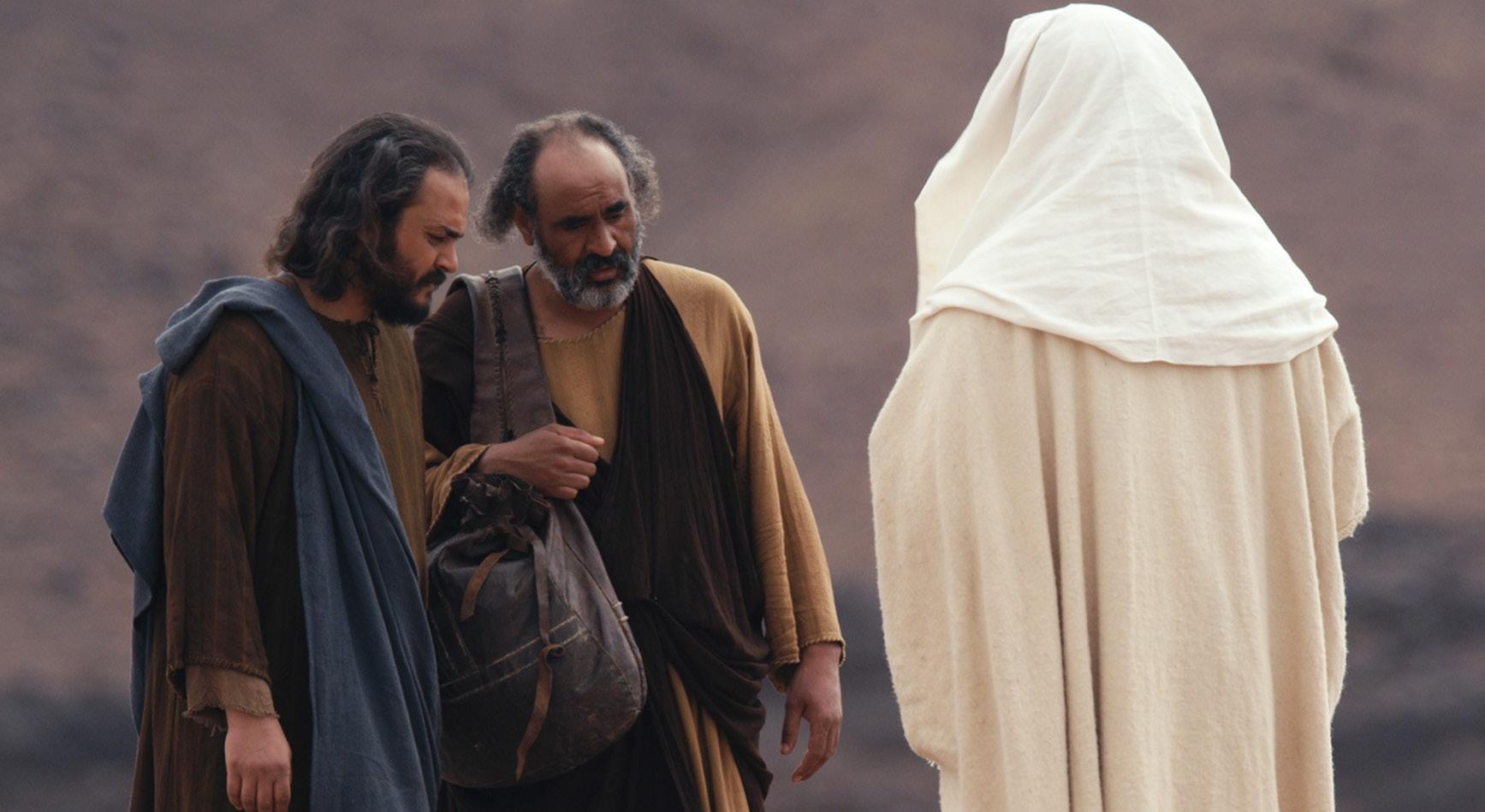

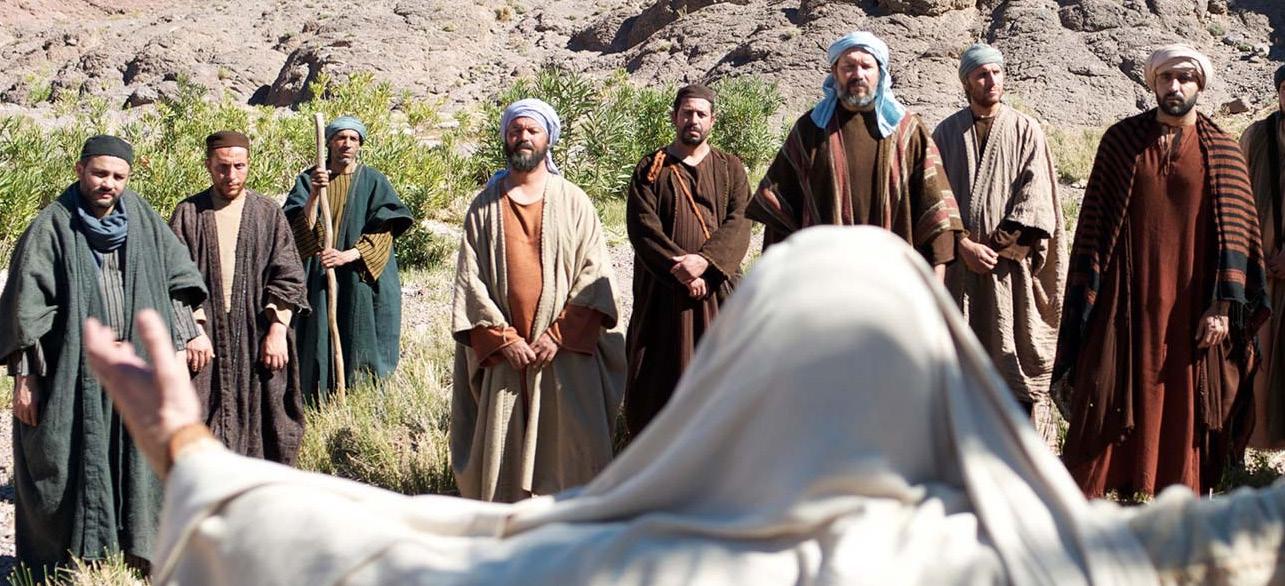
forbidden to call themselves rabbi (Mt. 23:8).”5
In other words, discipleship with Jesus is not a matter of a few years of study after which we graduate, but a lifelong relationship. Despite the passage of time, we remain disciples, and Jesus remains our Teacher.
The question, “Where are you staying?” is important because it shows an interest in moving with Jesus. The verb for staying, meneis, means, among other things, “to remain in a place,” “to wait,” “to be in the house,” “to spend the night,” “to dwell.”6 The disciples’ question indicates that they intended to stay with the Lord. This helps us to understand that discipleship requires a commitment to stay with Jesus; it is to remain with him and to move with him, as Jesus emphasizes later in John 15 in the teaching about the true vine. There, he stresses the importance of remaining in him. In verses 4 through 10, Jesus repeats the verb “to remain” 10 times. Transformative discipleship is achieved when we remain, when we move with, and when we stay with Jesus.
Jesus’s response to the disciples was “come and see.” Since they were determined to stay with Jesus, Jesus showed them where he was staying. The invitation to “come and see” is repeated several times throughout the Gospel of John. It is an invitation to follow, to know, and to commit to
discipleship with Jesus. John writes that “they came and saw where he was staying, and they stayed with him that day. Now it was about four o’clock in the afternoon” (1:39 NET). The verb meneis (to stay) that Andrew used to ask Jesus where he was staying is the same one used to tell us that the disciples “stayed” with Jesus. Here we have an emphasis on the importance of “staying” for transformative discipleship. For those two disciples, the die was cast—the decision had been made, the bridges were burned, and there was no turning back. That is true discipleship. We move in with Jesus and stay with him.
As we have seen, Jesus knows those he calls. Jesus scrutinized Andrew and the other disciple. But when Andrew brought his brother Peter to Jesus, Jesus also looked (emblepo) at him and called him Cephas, Aramaic for rock or stone (which is Peter in Greek). In other words, Jesus saw Peter as he was, but he also recognized what he would become as a result of his life of continuous discipleship with Jesus.
John goes on to tell us that Jesus found Philip, called him, and gave him the command, “Follow me” (1:43). Perhaps you have heard the word “eureka,” which reminds us of Archimedes when he discovered the principle of buoyancy of objects in water. The word eureka means “to find after

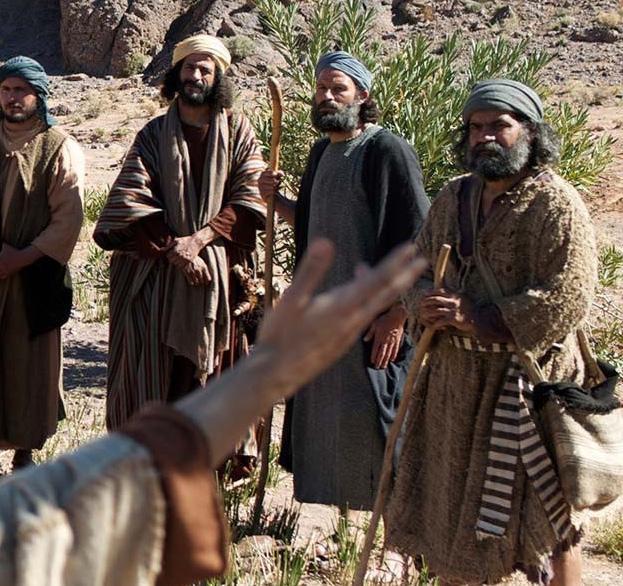
searching.”7 This indicates Jesus was intentional in seeking and finding Philip. Philip in turn sought out Nathanael, who doubted that anything good could come out of Nazareth. Philip said to Nathanael the same thing that Jesus said to Andrew: “Come and see” (v. 46).
When Jesus saw Nathanael approaching, he said, “Look, a true Israelite in whom there is no deceit” (v. 47). This statement astonished Nathanael, who asked Jesus where he knew him from. I think Jesus’s answer stunned him: “Before Philip called you, when you were still under the fig tree, I saw you” (v. 48 AMP). The verb eidon, translated here as “see,” is related to the verb “know.” Jesus let Nathanael know that he already knew him. Jesus knew his integrity, his character, and his sincerity. Unlike his ancestor Jacob, who was a deceiver, Jesus told him that there was “no deceit in him.”
This statement by Jesus led Nathanael to make one of the most complete Christological confessions about Jesus. First, he called him Rabbi, recognizing his authority as a teacher. Then he said, “You are the Son of God,” recognizing his relationship with God and his deity. Following that he said, “You are the King of Israel,” recognizing him as the root of the trunk of Jesse, the heir to the throne of Israel.
There are other instances in which Jesus reveals his knowledge of people. In John 2:23–25, John tells us that after the Passover feast in Jerusalem, “many believed in his name, seeing the signs which he did, but Jesus did not trust himself unto them because he knew all men and needed not that any should give testimony, for he knew what was in man” (JUB). At the end of chapter 6, after a mass exodus of disciples, Jesus asked the Twelve if they also wanted to leave. John writes,
Simon Peter answered him, “Lord, to whom shall we go? You have the words of eternal life. We have come to believe and to know that you are the Holy One of God.” Then Jesus replied, “Have I not chosen you, the Twelve? Yet one of you is a devil!” (He meant Judas, the son of Simon Iscariot, though one of the Twelve, was later going to betray him). (John 6:68–70 NIV)
As we can see, Jesus knows us intimately. He knows us by name, but more than anything else, he knows our hearts. There is nothing we can hide from him. Jesus knows if we are deceitful or if we are not deceitful. Jesus knows if there is a Judas inside us, willing to sell him out and betray him for money. To be transformed into the likeness of Jesus, we must be willing to pass the test of his searching eyes. I always wonder what Jesus sees in me when his eyes examine me. Ask yourself the same question!
1 Gerhard Kittel, “Ἀκολουθέω, Ἐξ-, Ἐπ-, Παρ-, Συνακολουθέω,” in Theological Dictionary of the New Testament, ed. Gerhard Kittel, Geoffrey W. Bromiley, and Gerhard Friedrich (Grand Rapids, MI: Eerdmans, 1964), 213–215.
2 Kittel, “Ἀκολουθέω, Ἐξ-, Ἐπ-, Παρ-, Συνακολουθέω,” in Theological Dictionary of the New Testament, 213–215.
3 Wilhelm Michaelis, “Ὁράω, Εἶδον, Βλέπω, Ὀπτάνομαι, Θεάομαι, Θεωρέω, Ἀόρατος, Ὁρατός, Ὅρασις, Ὅραμα, Ὀπτασία, Αὐτόπτης, Ἐπόπτης, Ἐποπτεύω, Ὀφθαλμός,” in Theological Dictionary of the New Testament, 345.
4 Merriam-Webster Dictionary, s.v. “gaze,” https://www.merriam-webster.com/dictionary/gaze.
5 Eduard Lohse, “Ῥαββί, Ῥαββουνί,” in Theological Dictionary of the New Testament, 964.
6 Lohse, “Ῥαββί, Ῥαββουνί,” in Theological Dictionary of the New Testament, 964.
7 Herbert Preisker, “Εὑρίσκω,” in Theological Dictionary of the New Testament, 769.
BISHOP ELIAS RODRIGUEZ, DMIN CENTER FOR BIBLICAL LEADERSHIP INSTRUCTOR
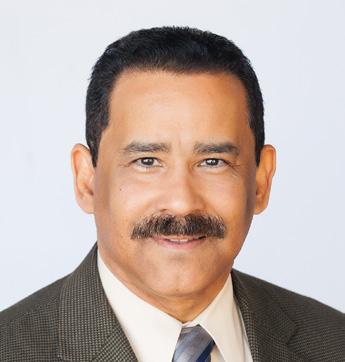

LDD.Podcast
Leadership Development and Discipleship






IN HIS PRESENCE
DECEASED MINISTERS | REPORTED AS
EUNICE C. CHAMBERS
Cayman Islands
July 31, 2024
Licensed minister for 11 years
LASCELLES B. ALLEN
Jamaica
Reported December 3, 2024
Licensed minister for 41 years
ESAU COBOURNE
Jamaica
Reported December 3, 2024
Licensed minister for 40 years
OF SEPTEMBER 1, 2025
ROSAMOND D. HONEYGHAN-MULLINGS
Jamaica
Reported December 3, 2024
Licensed minister for 4 years
LEONARD WELLINGTON
Jamaica
Reported December 3, 2024
Licensed minister for 53 years
SIDEOUS WORRELL
Jamaica
Reported December 3, 2024
Licensed minister for 40 years
HILDA OVERSTREET
Florida
March 22, 2024
Licensed minister for 50 years
LESLIE M. HARTSFIELD
North Carolina
November 3, 2021
Licensed minister for 39 years
LOUIS KINARD
South Carolina
July 5, 2025
Licensed minister for 44 years

MARSHA ROBINSON PODCAST HOST

BISHOP SHAUN MCKINLEY GLOBAL COMMUNICATIONS
EXECUTIVE DIRECTOR
GLYNIS VARLACK-ALLGOOD CLEVELAND, TENNESSEE
Our world is full of tension—questions about identity, culture, and faith are everywhere. How should the church respond? On the latest White Wing Messenger Podcast, Bishop Shaun McKinley unpacks his article “Ambassadors on Mission” and reminds us that our calling isn’t fear or fury—it’s reconciliation. Discover how to engage culture with conviction, civility, and compassion. After that, Glynis Varlack-Algood spends quality time sharing with listeners how to utilize social media, the internet, and technology to effectively promote kingdom work. Tune in and be blessed!
SUBSCRIBE TODAY ON ALL MAJOR PODCAST PLATFORMS
